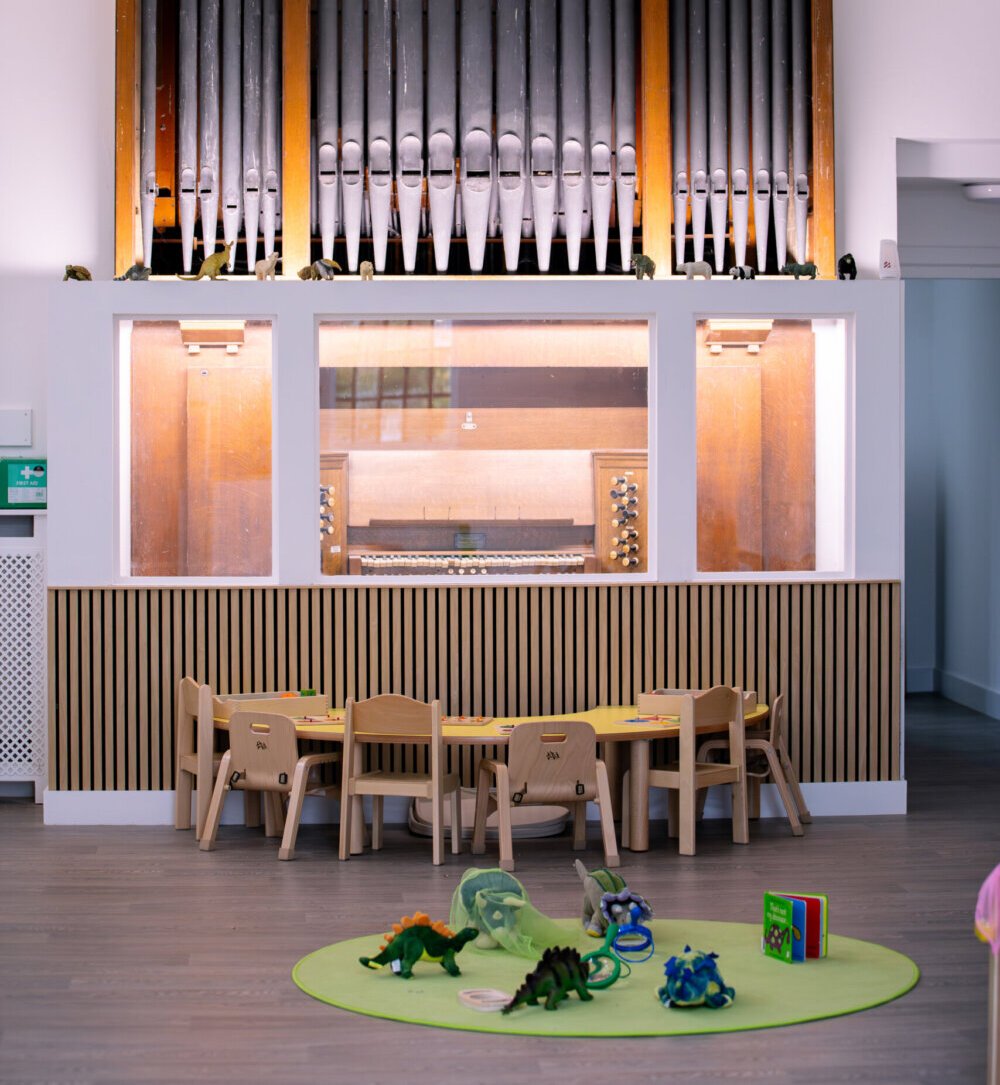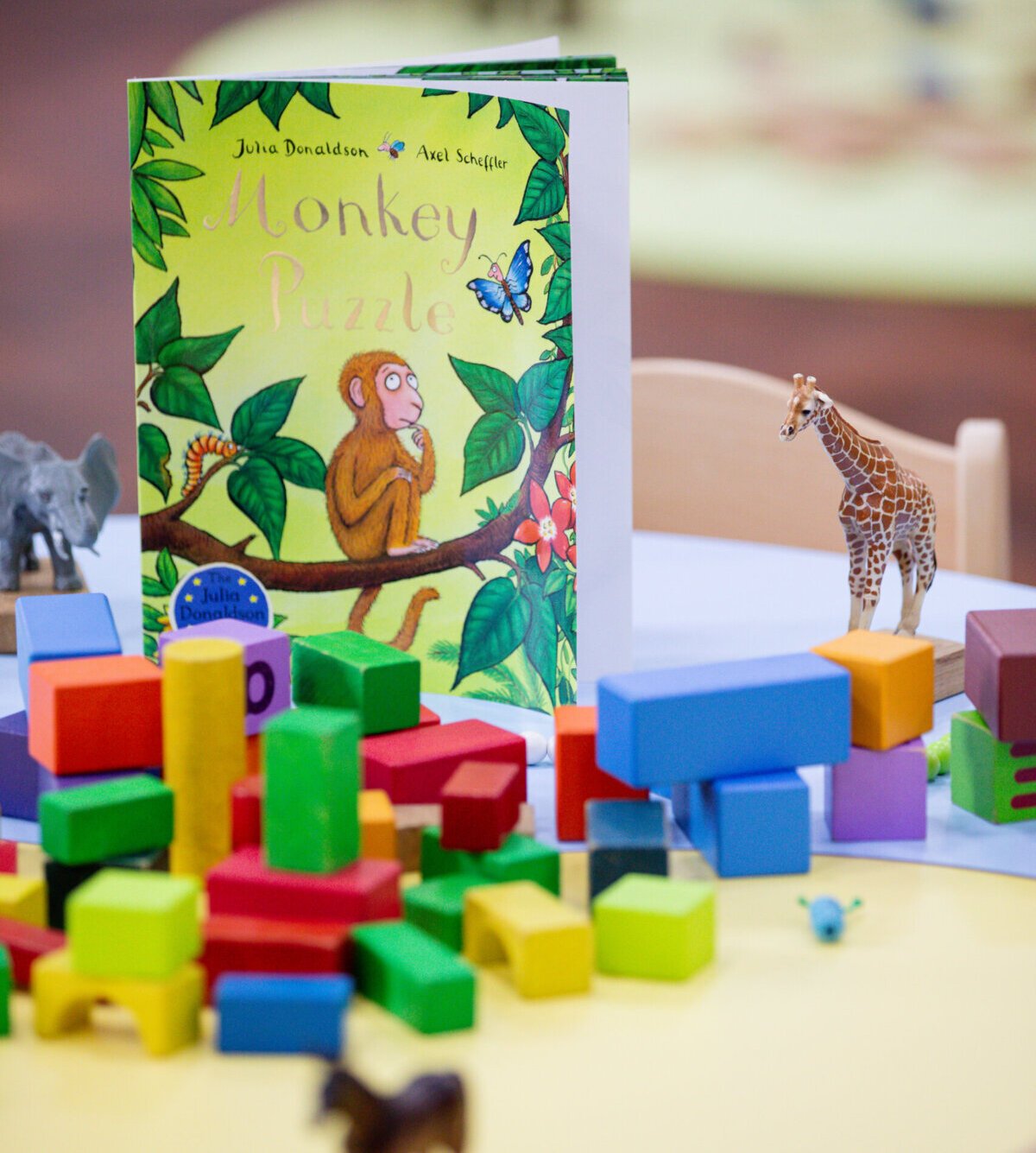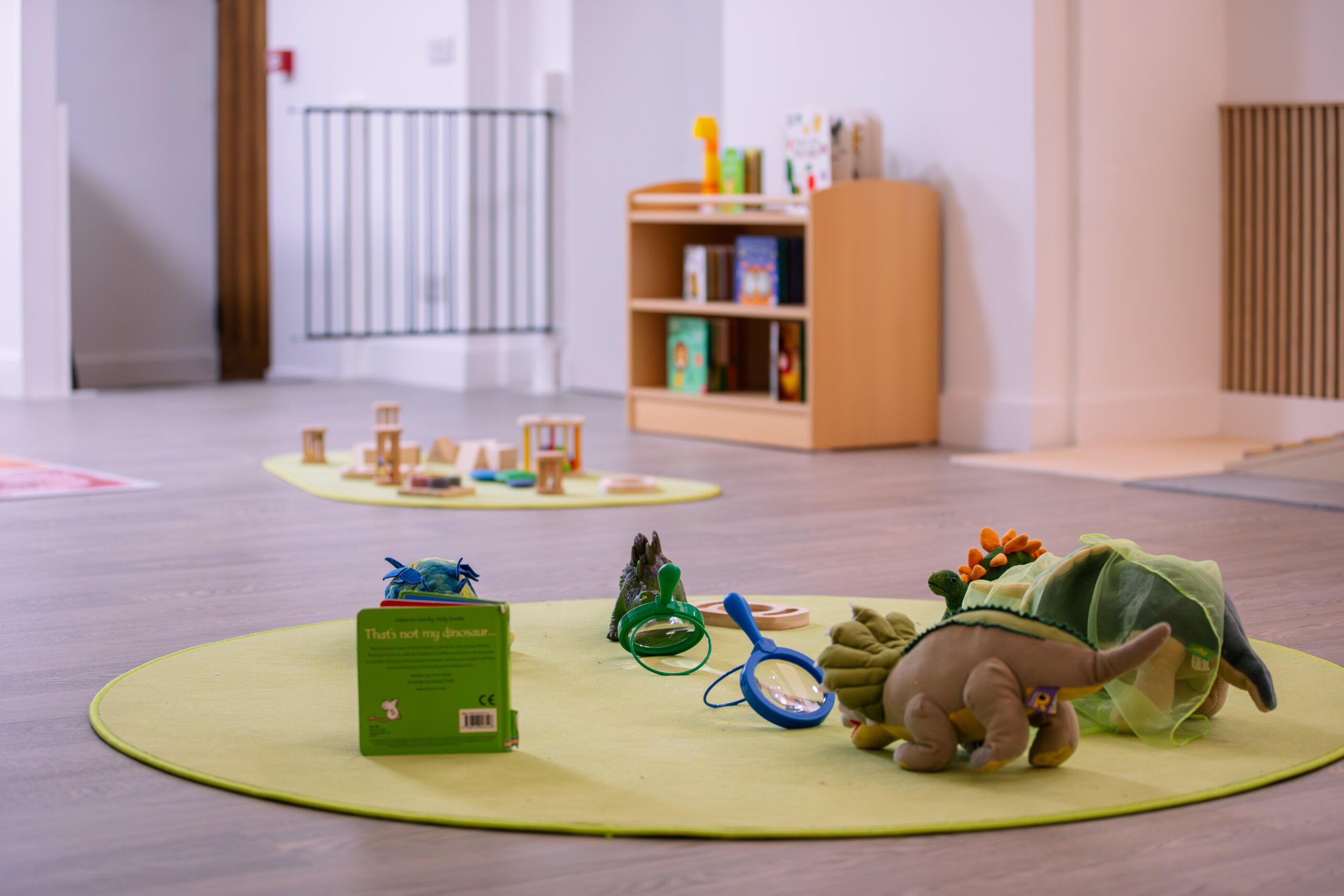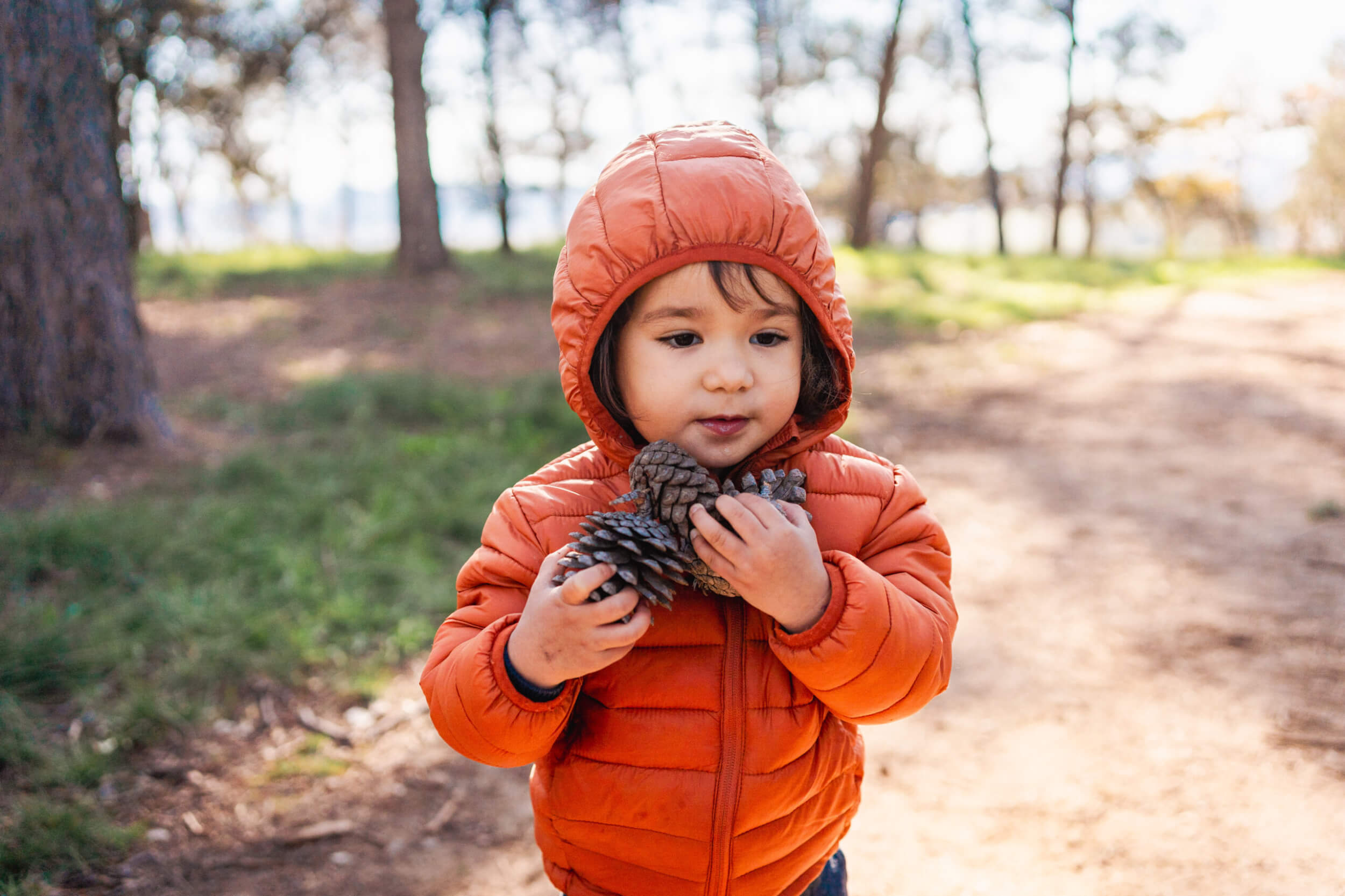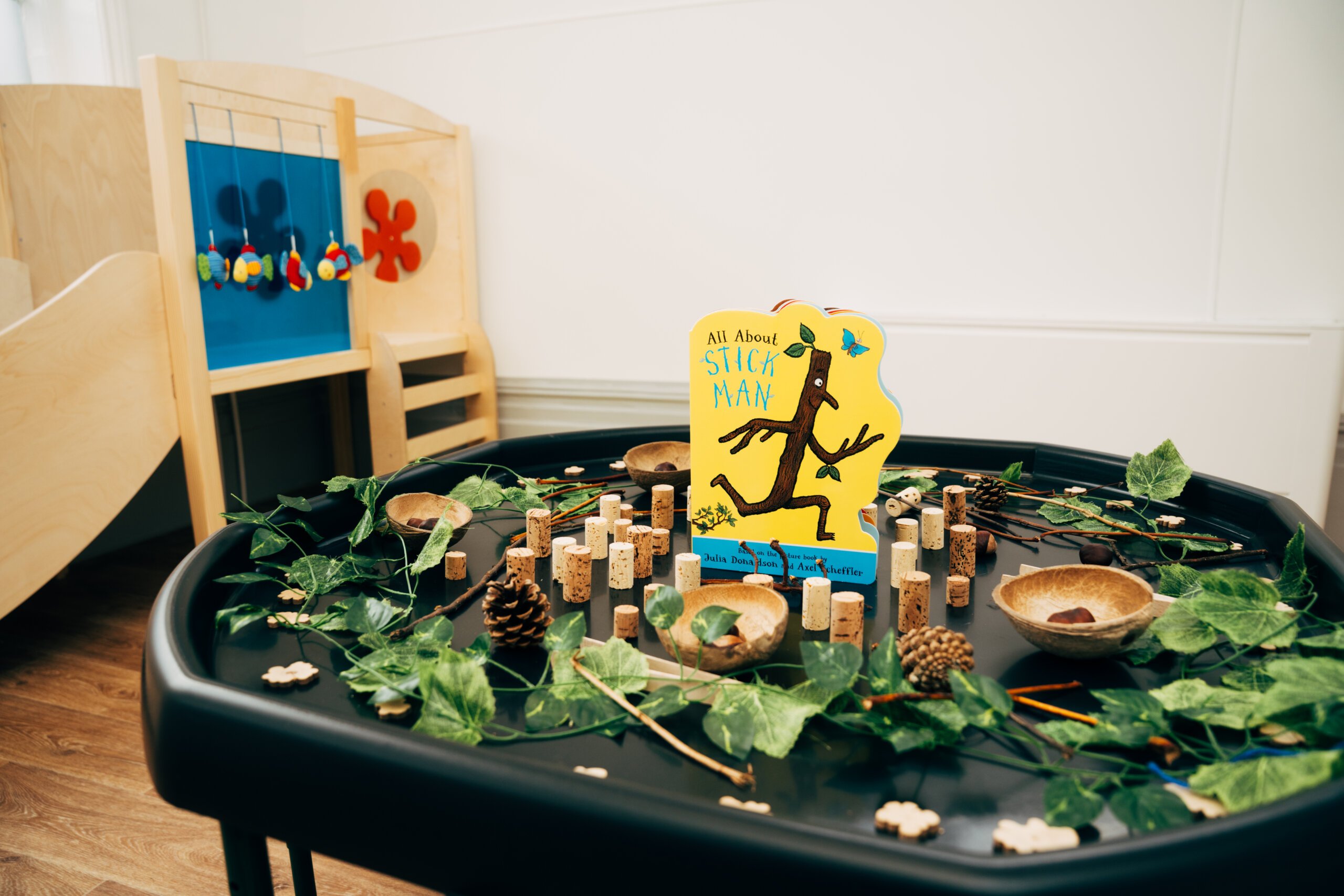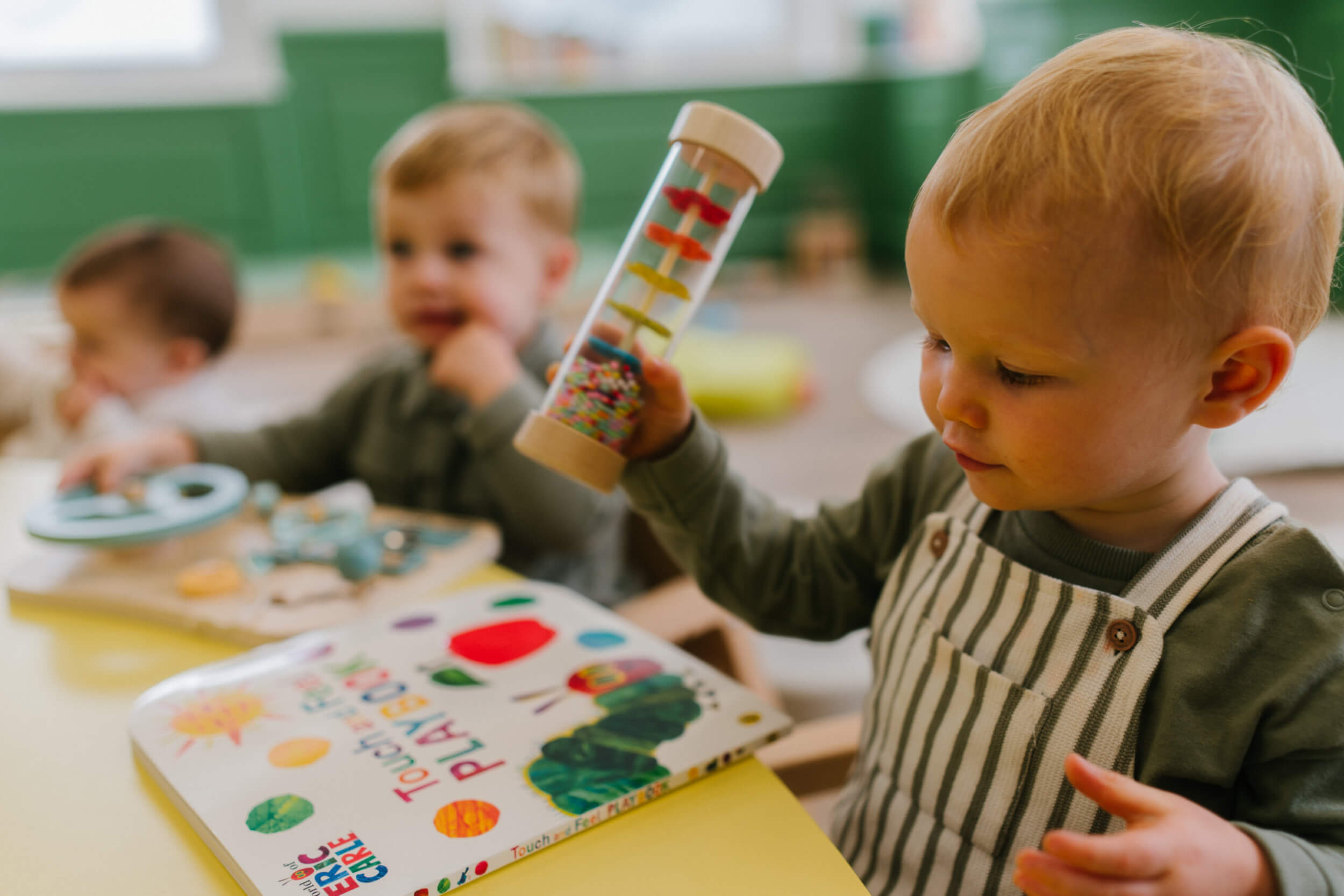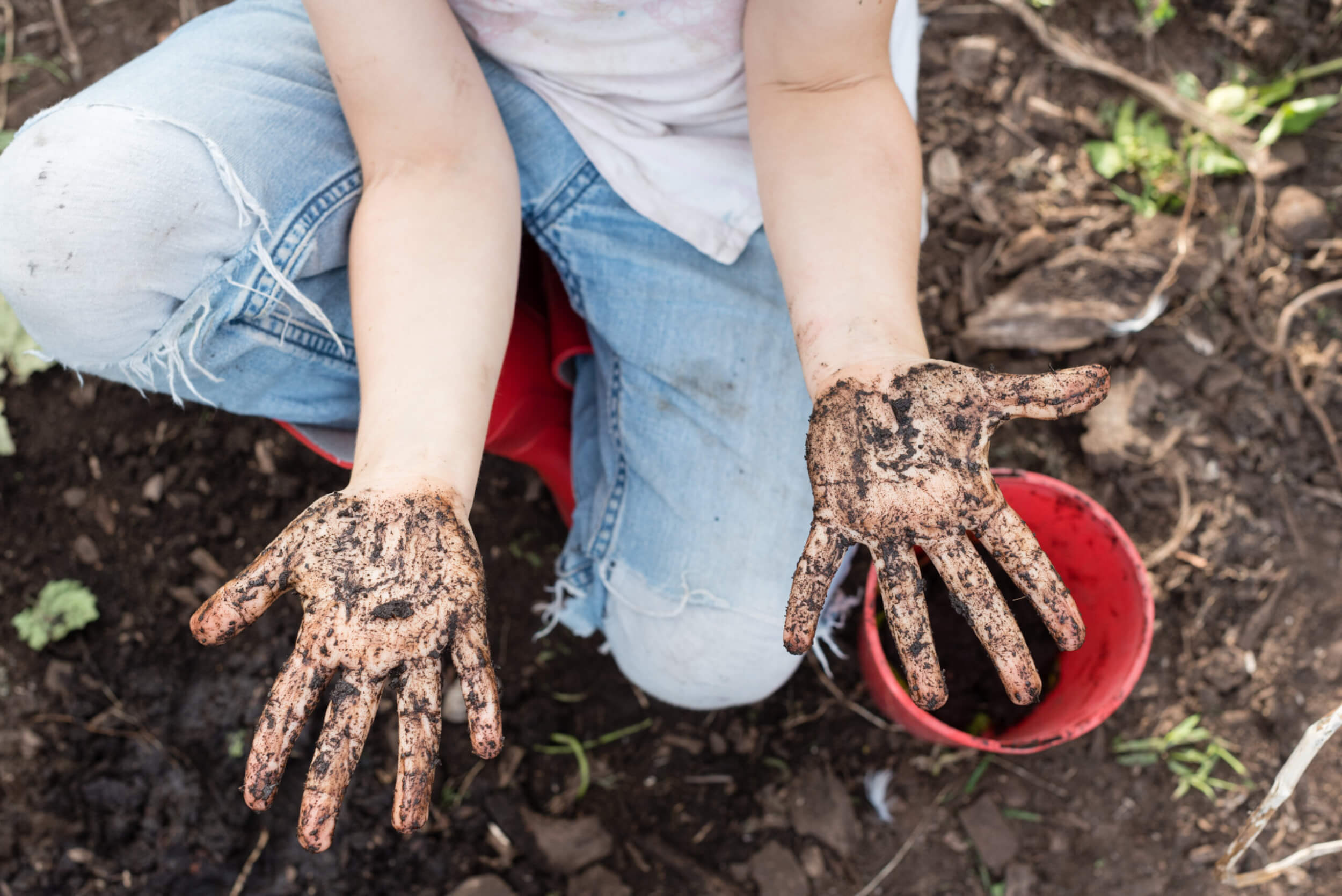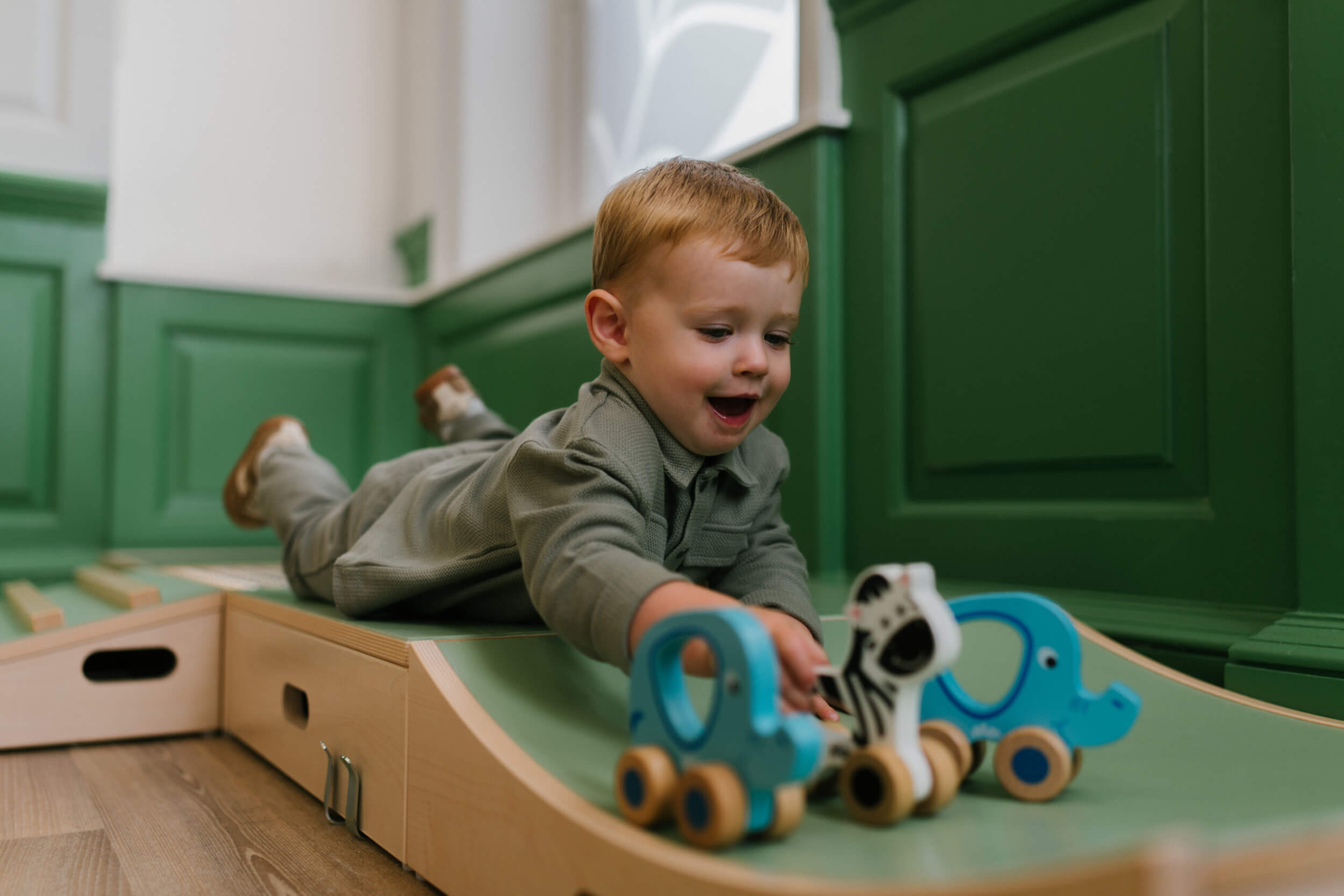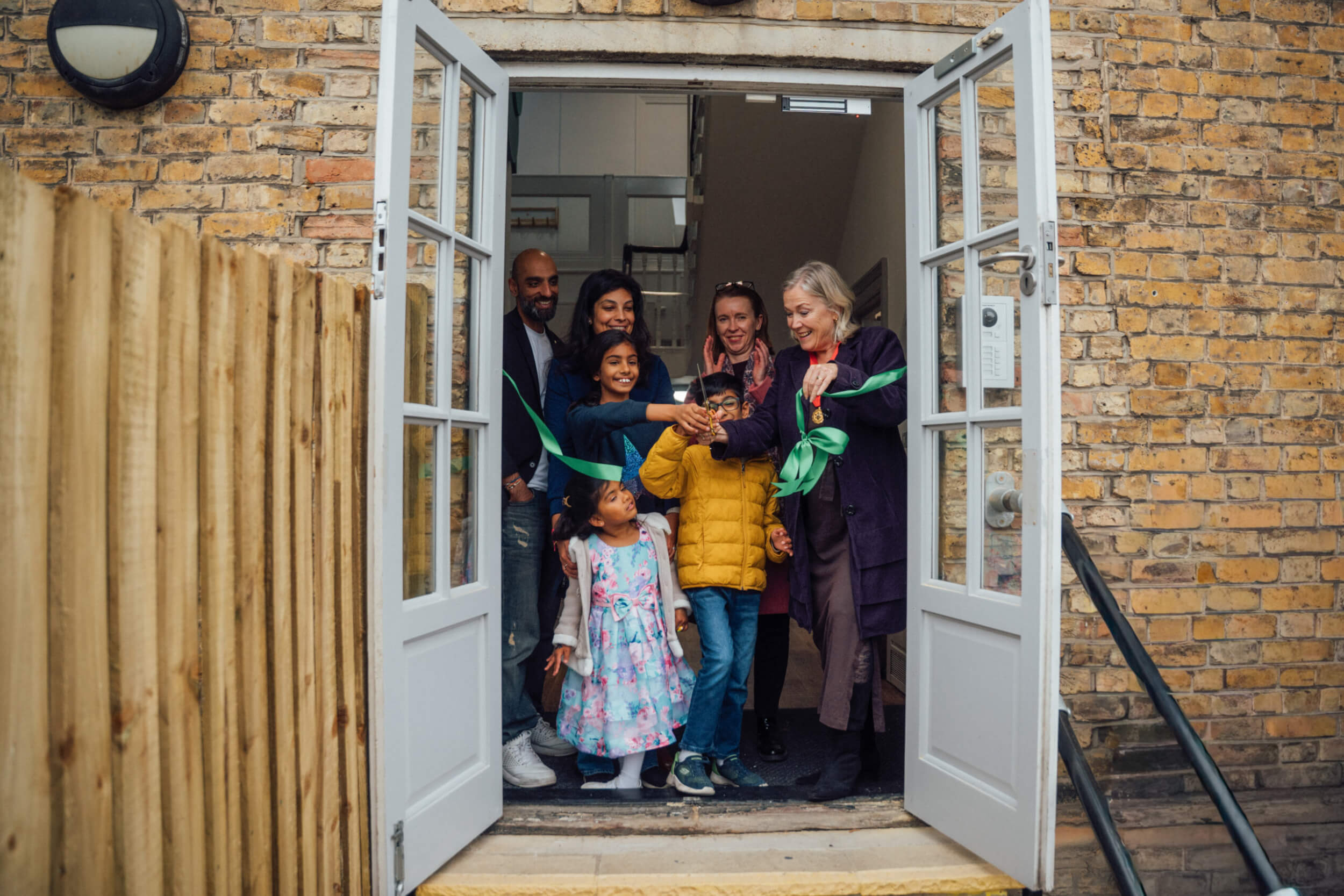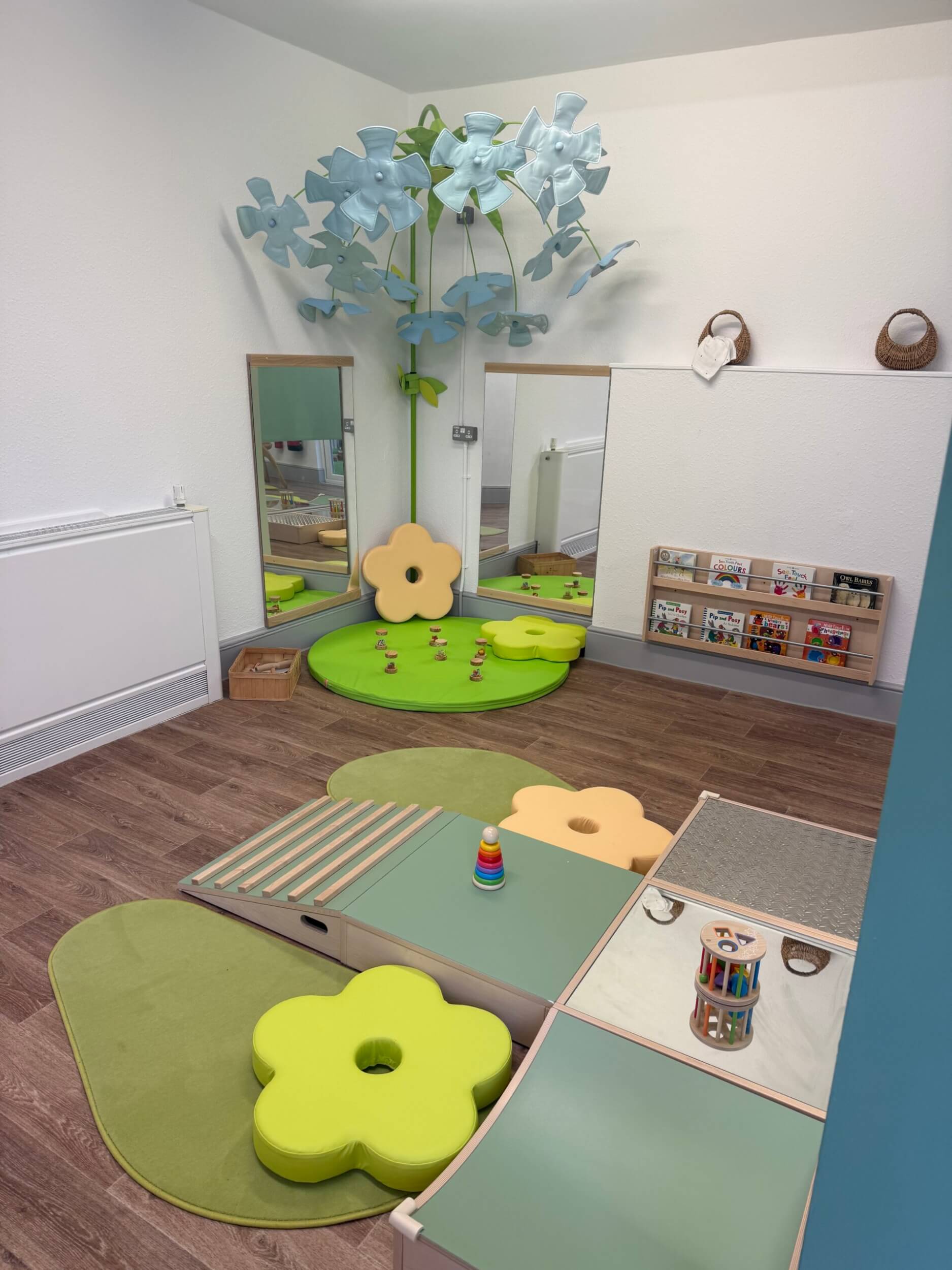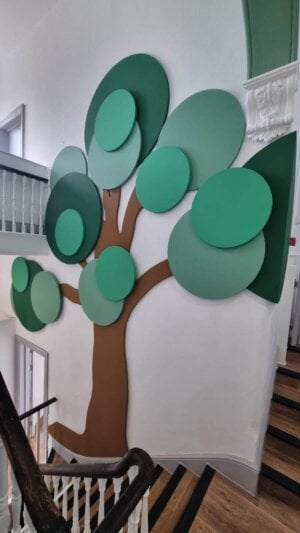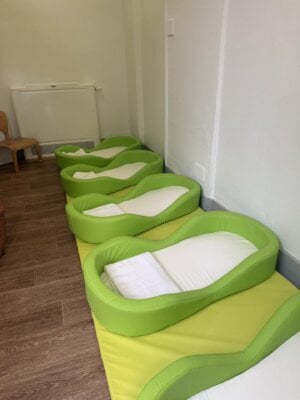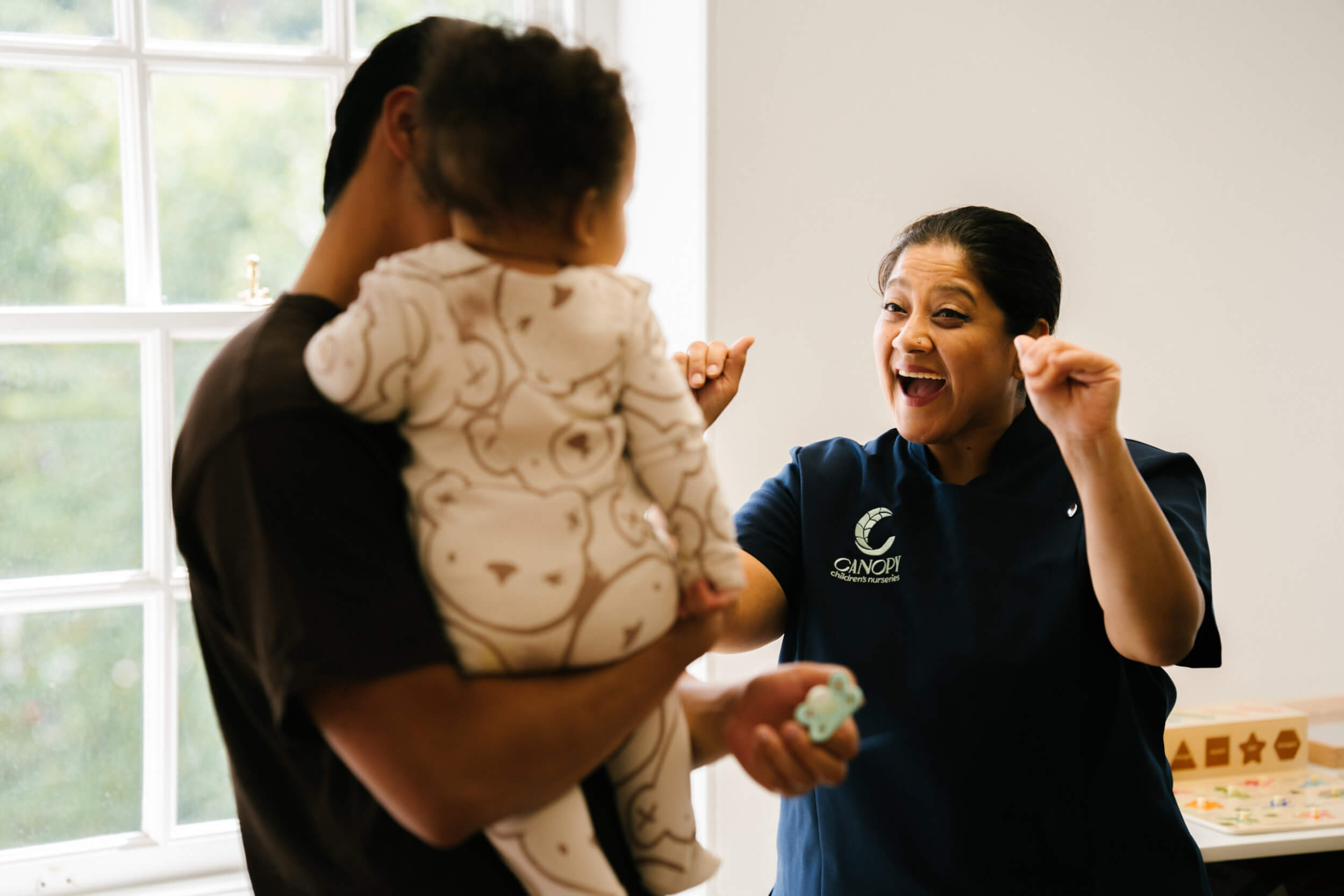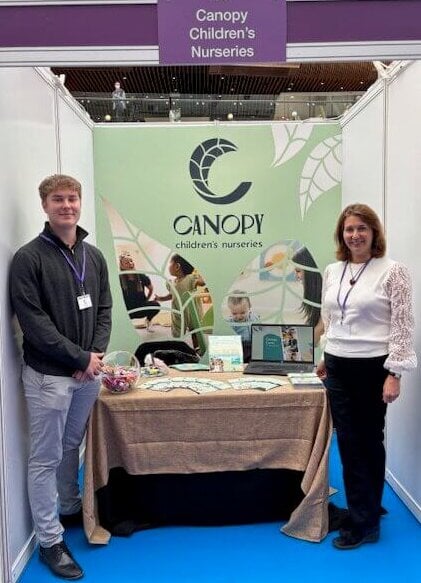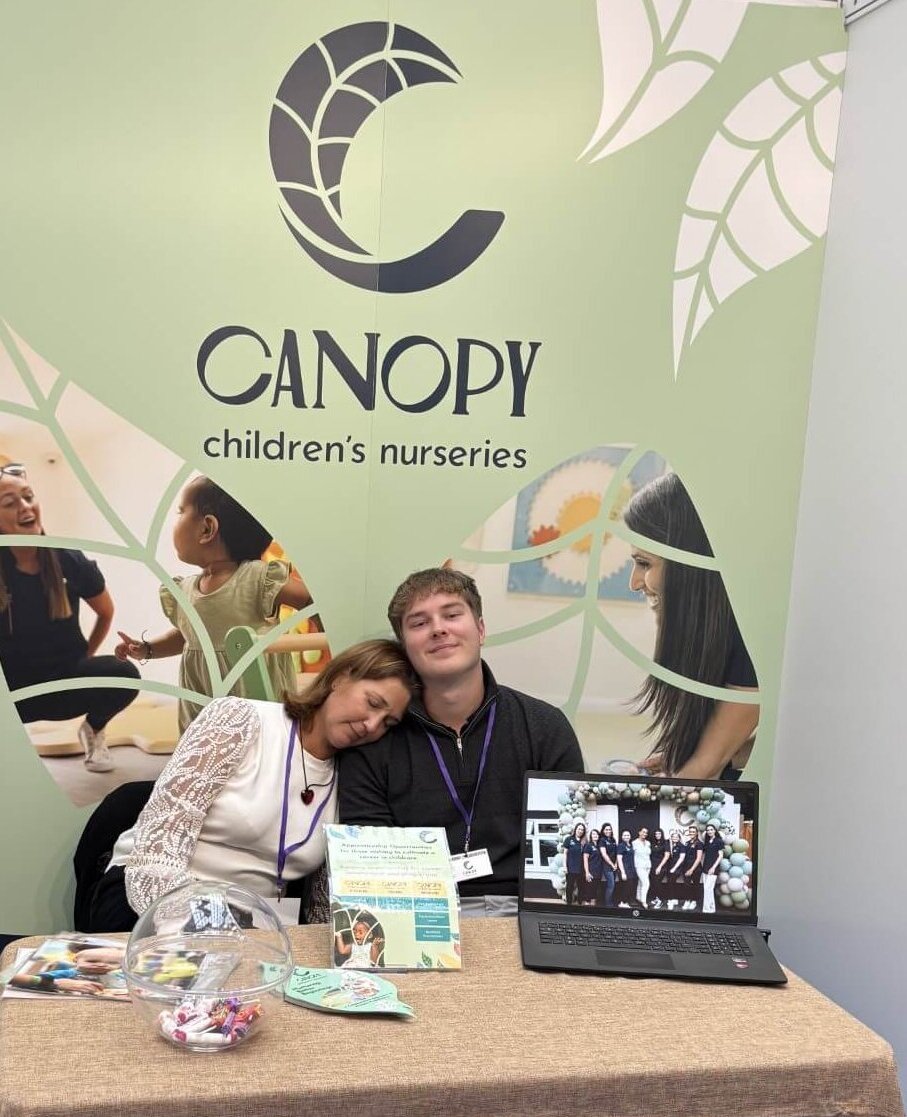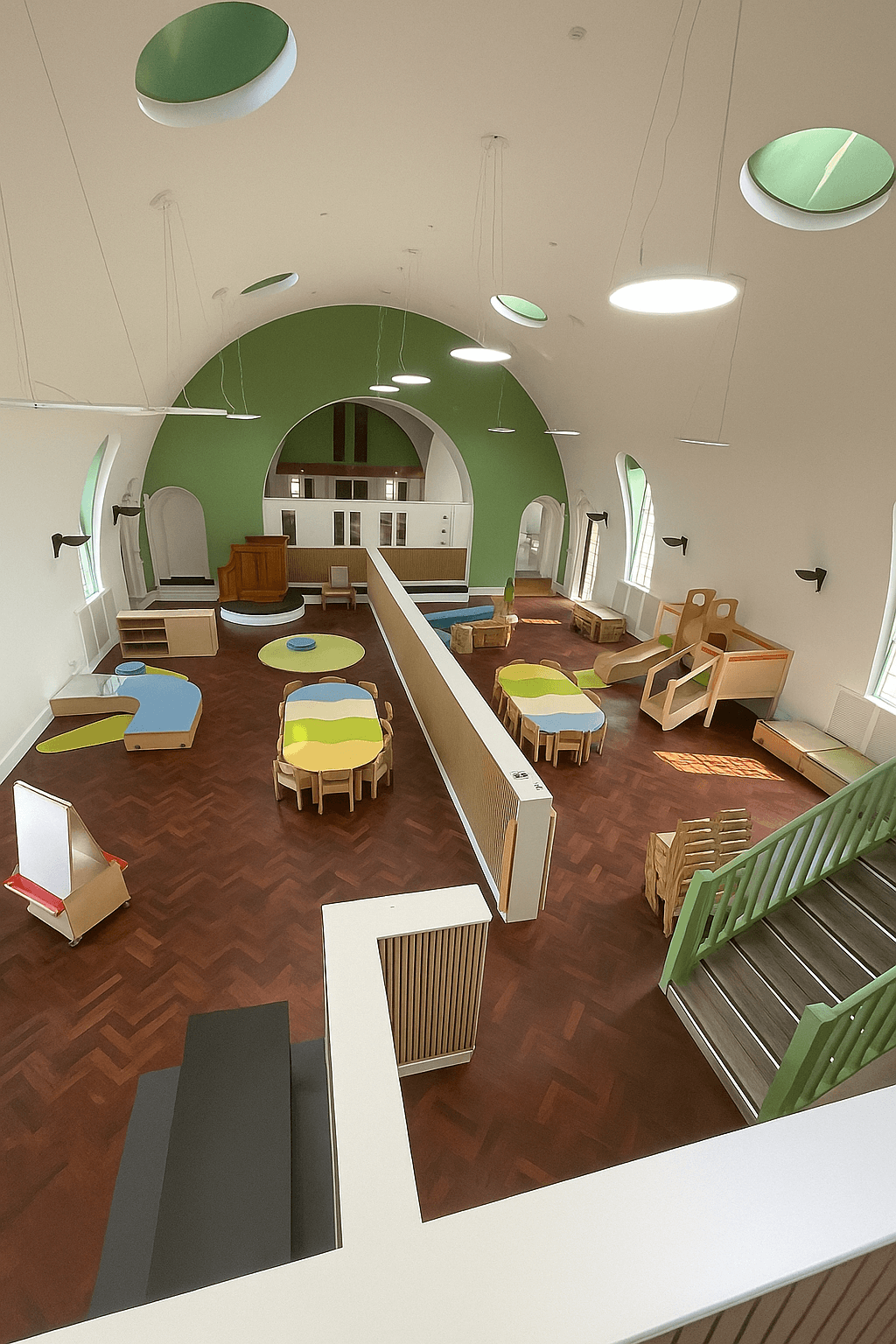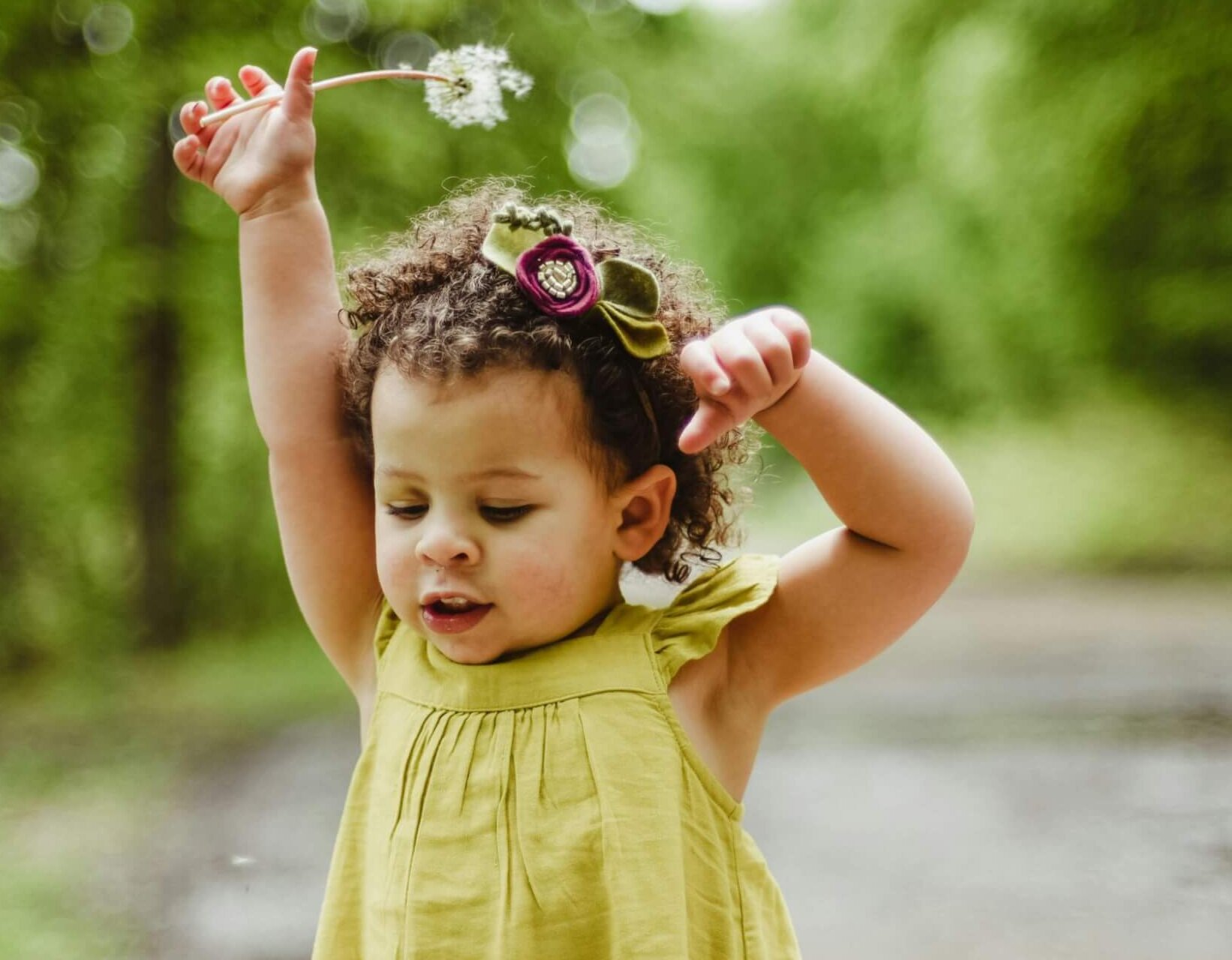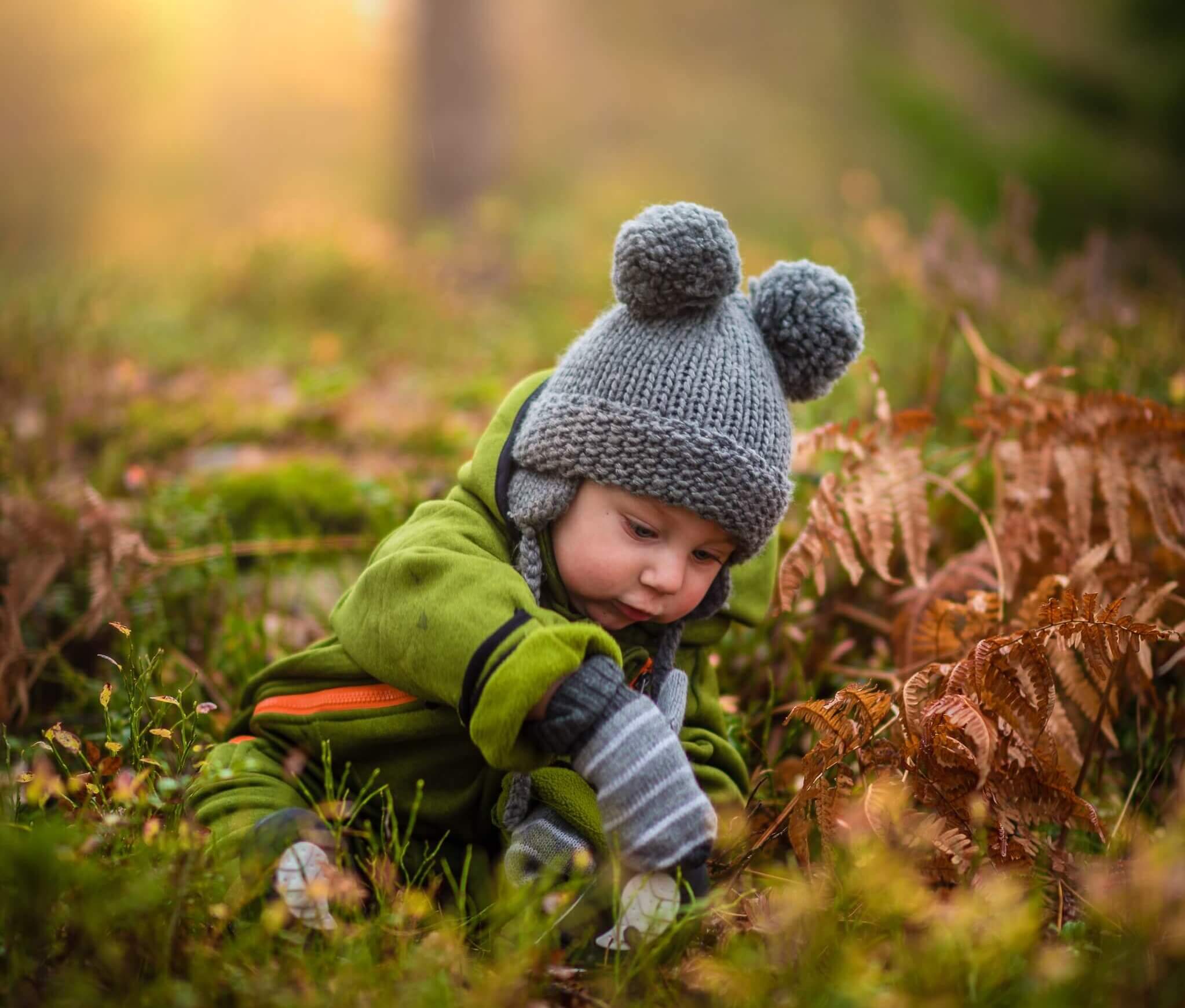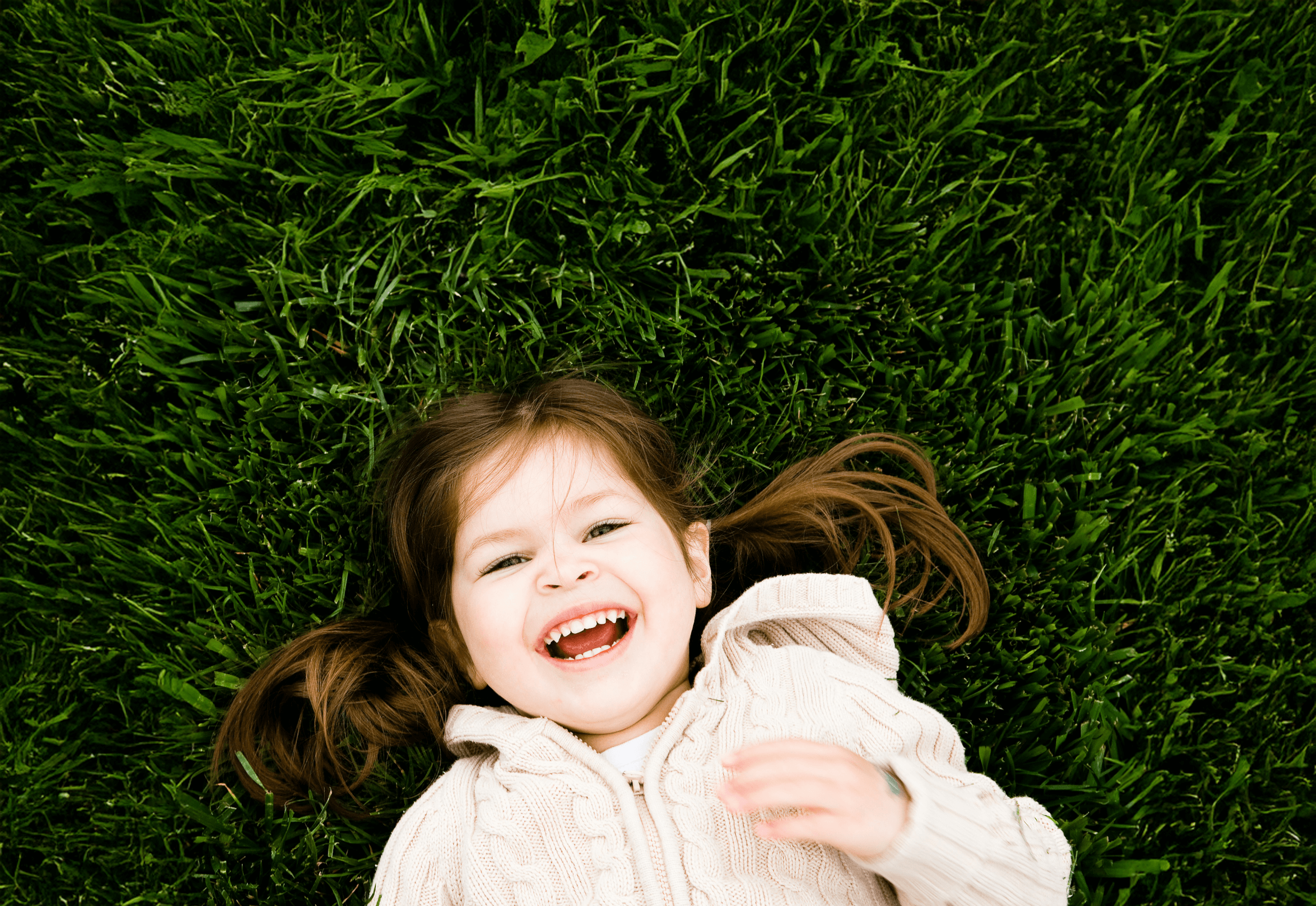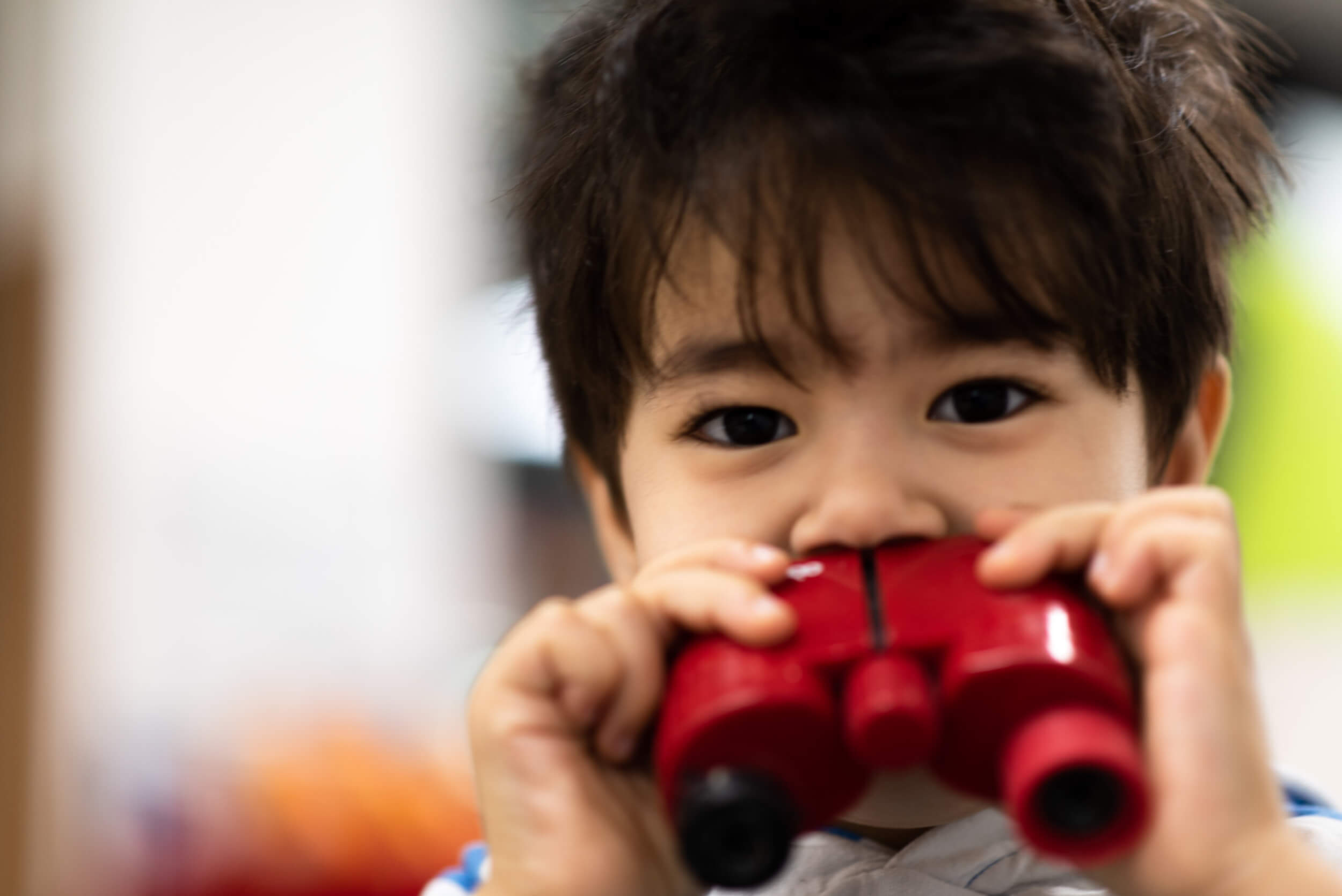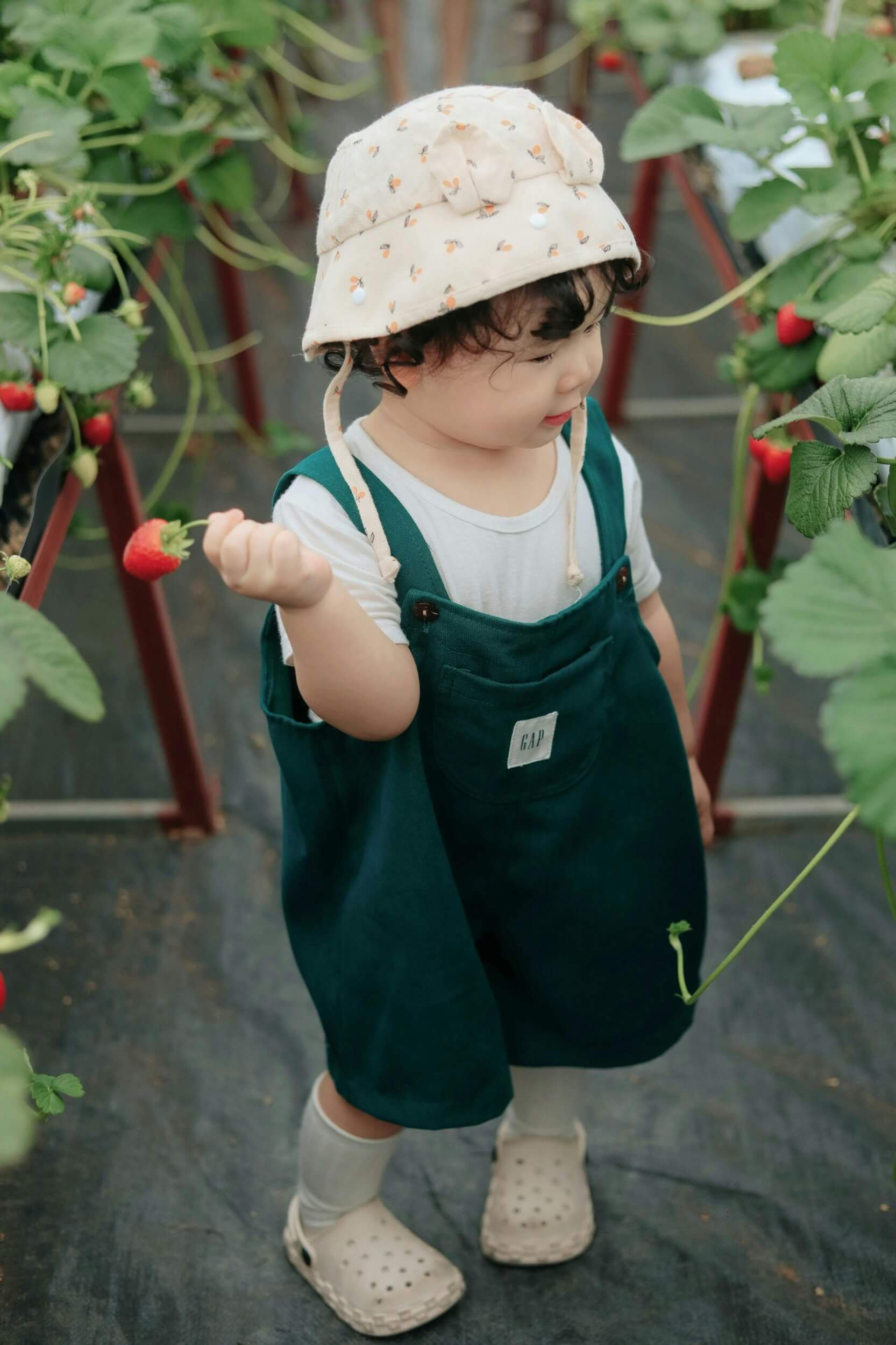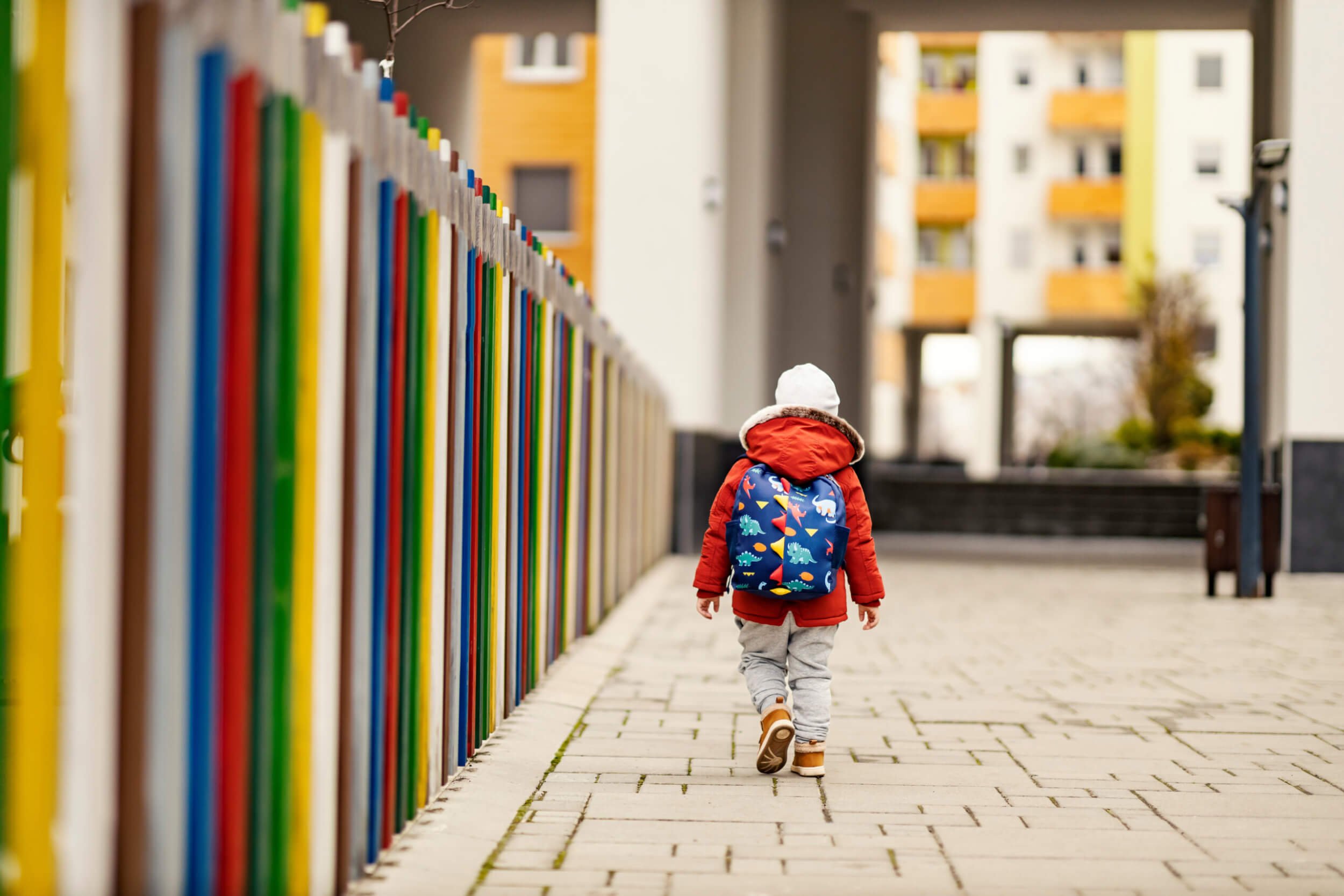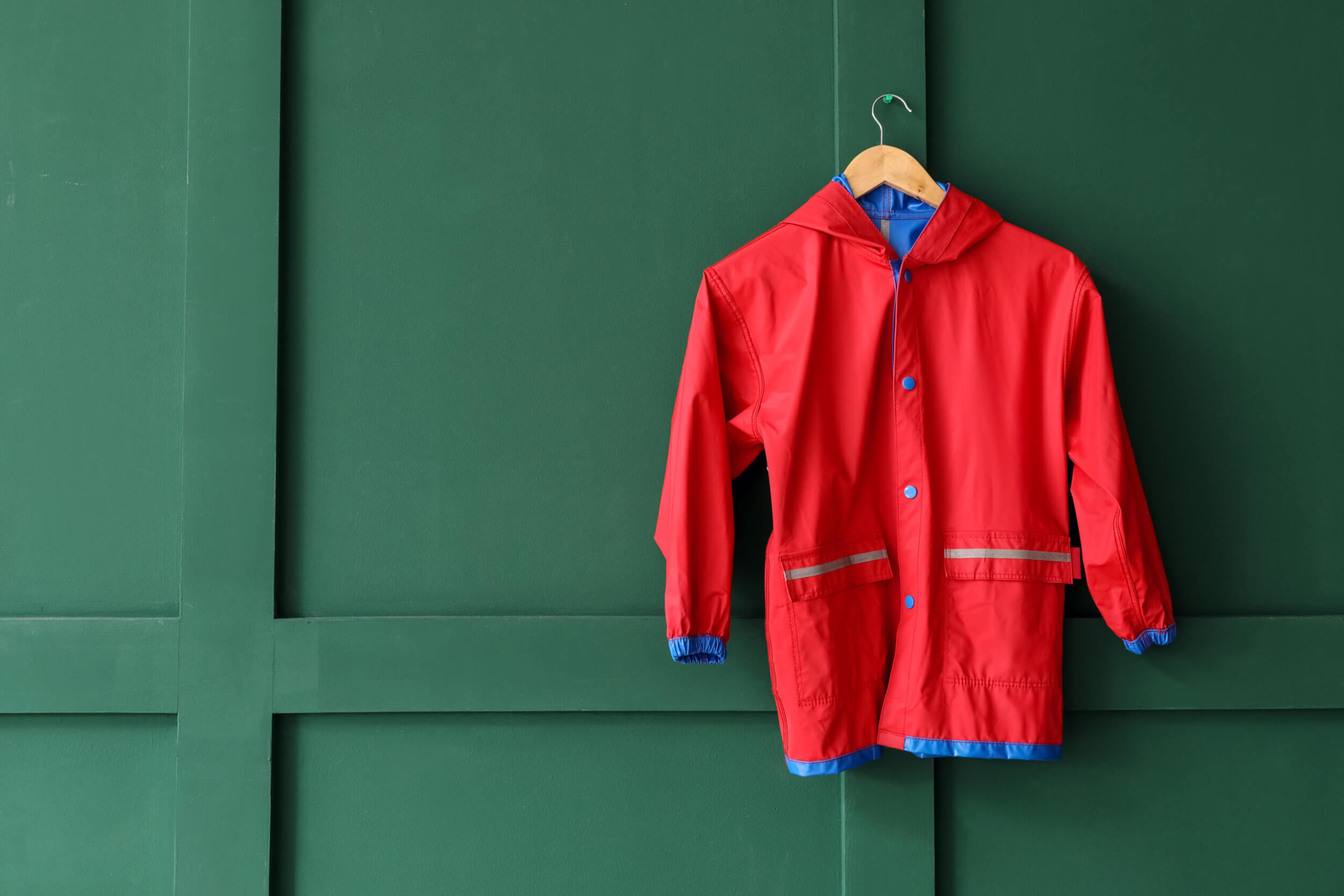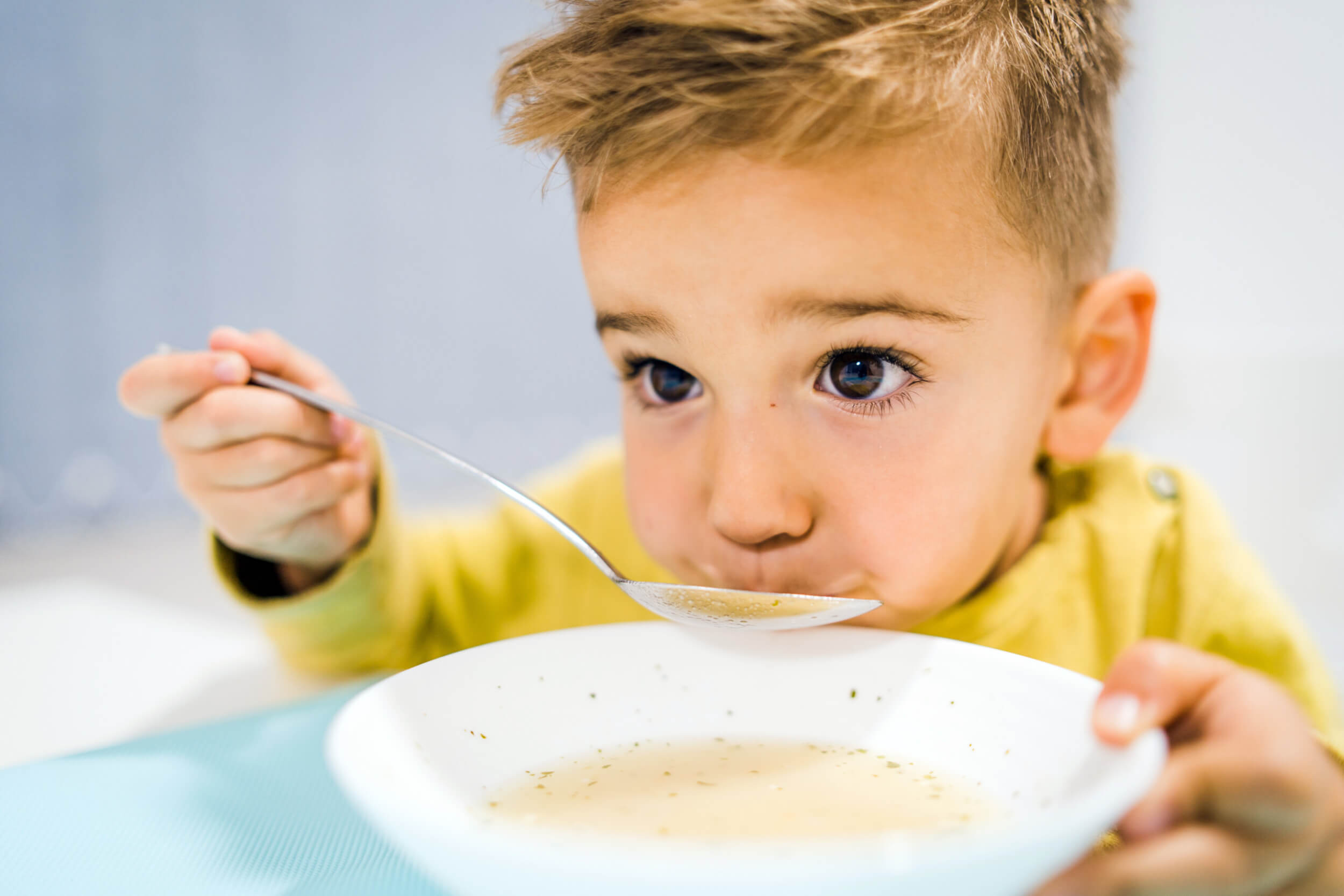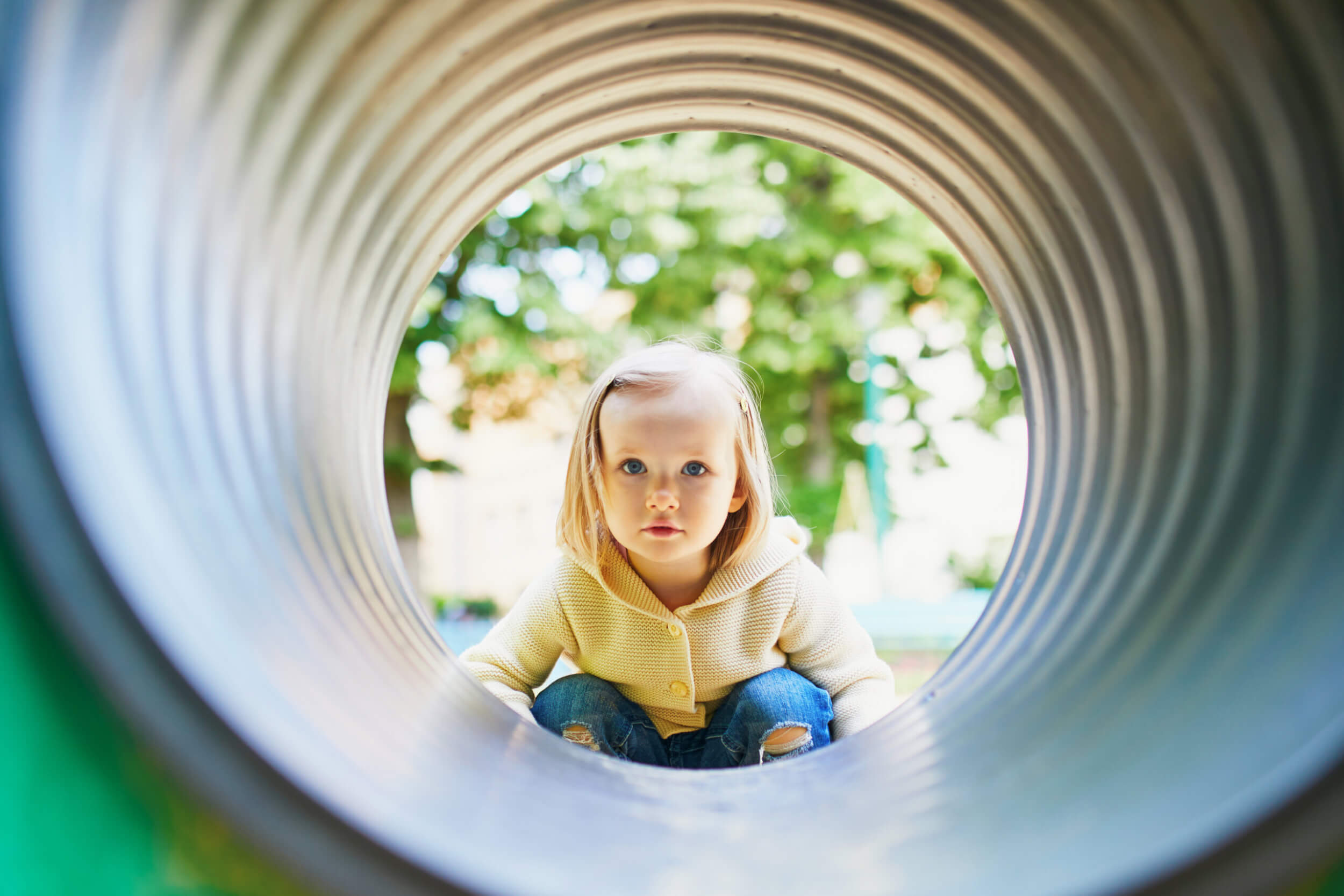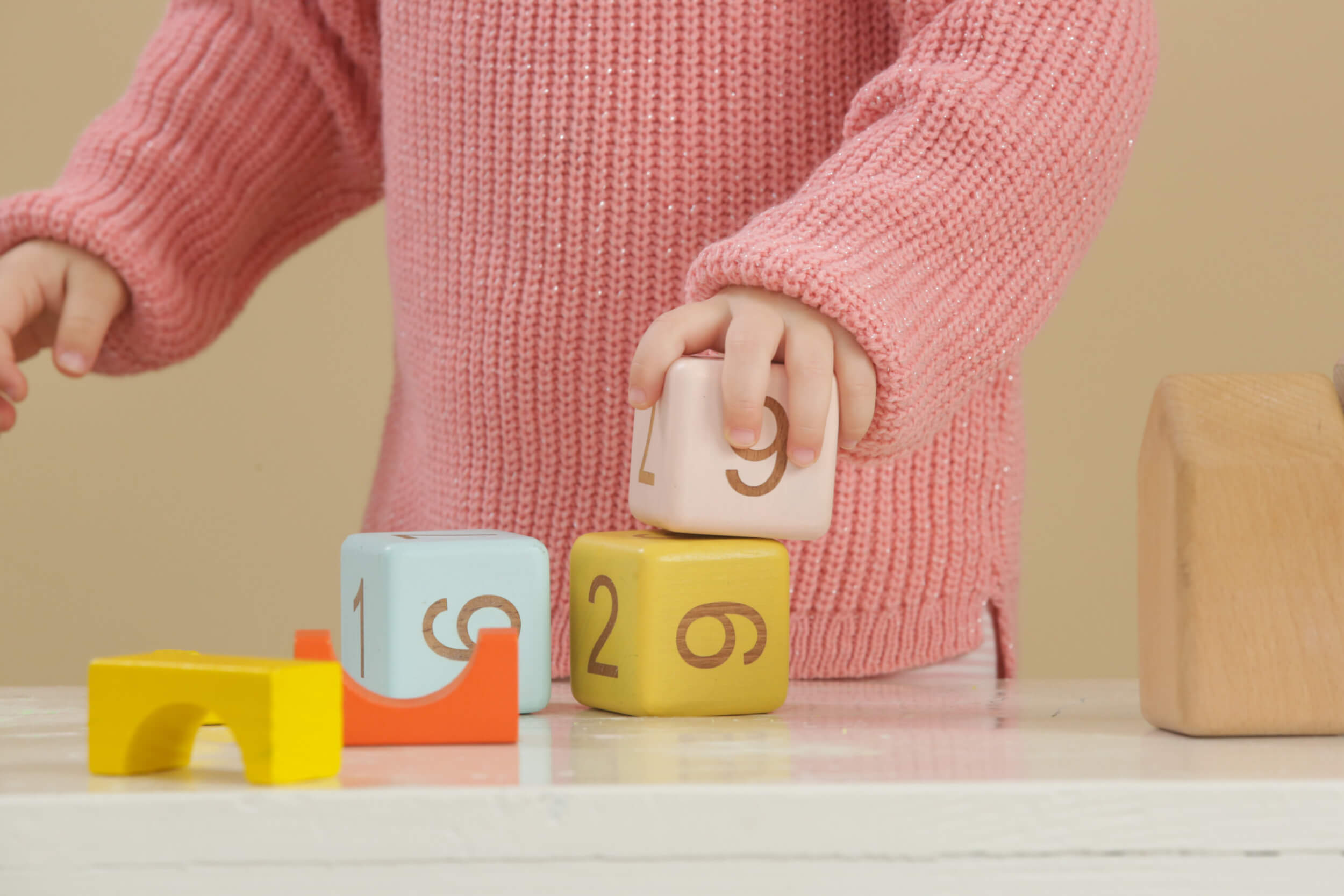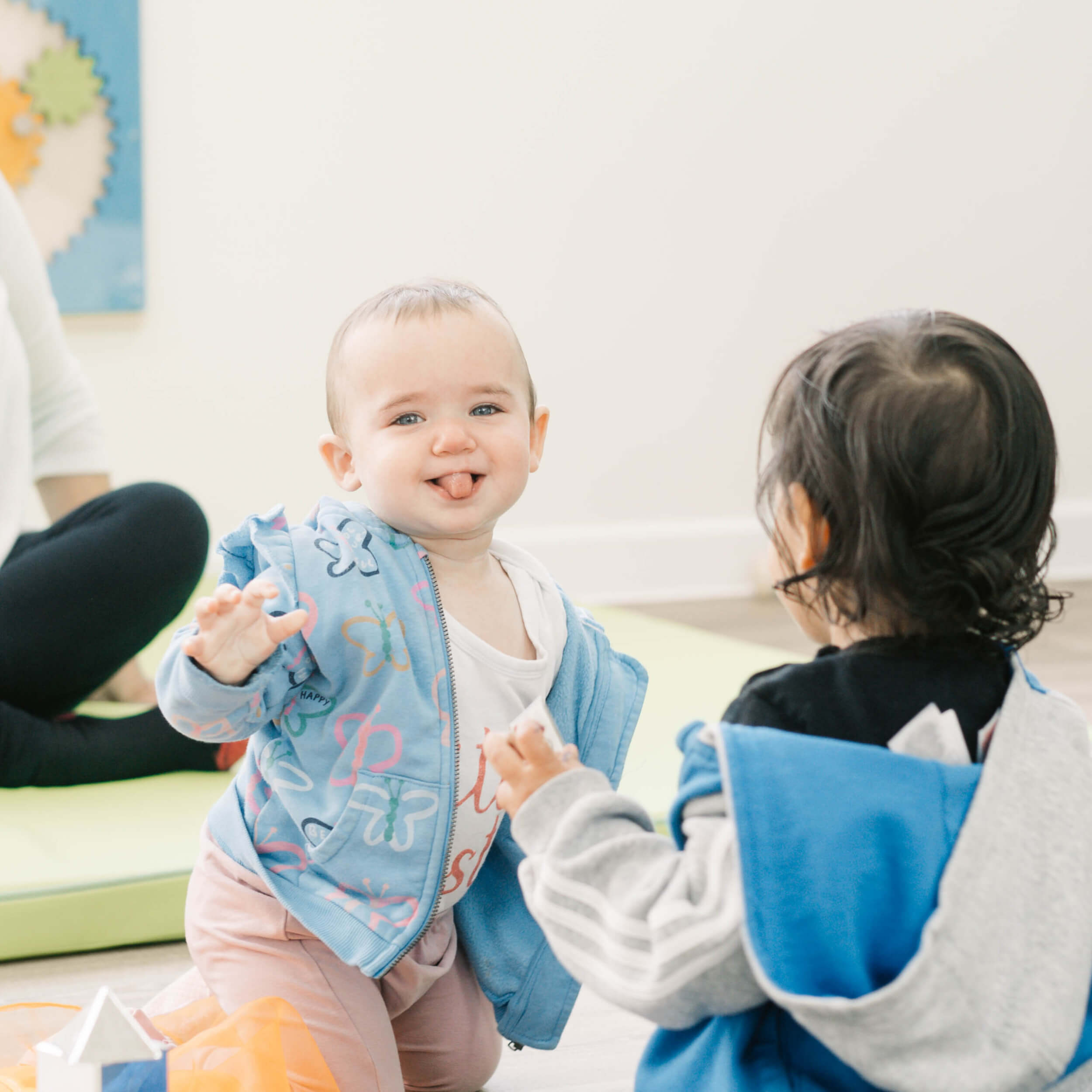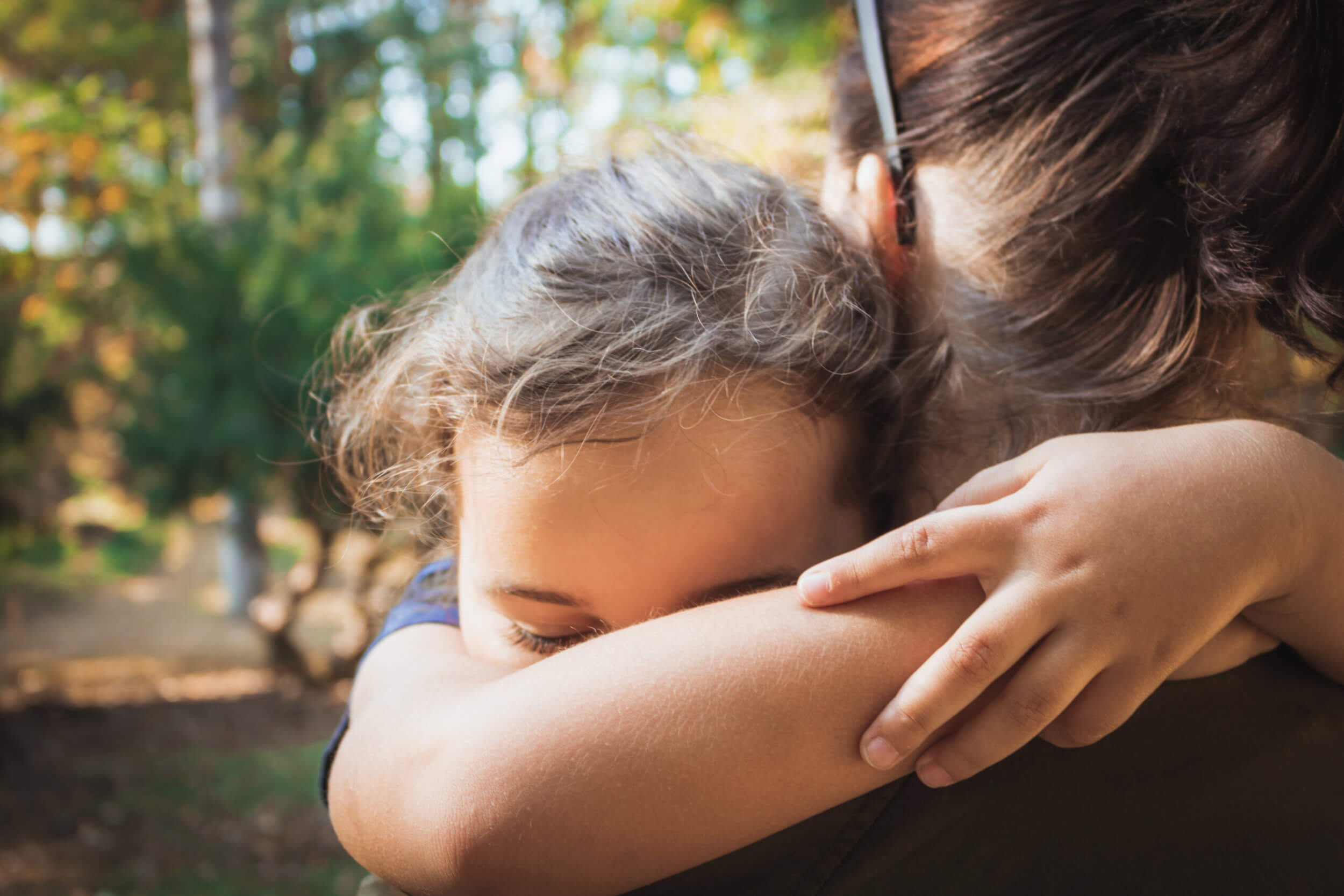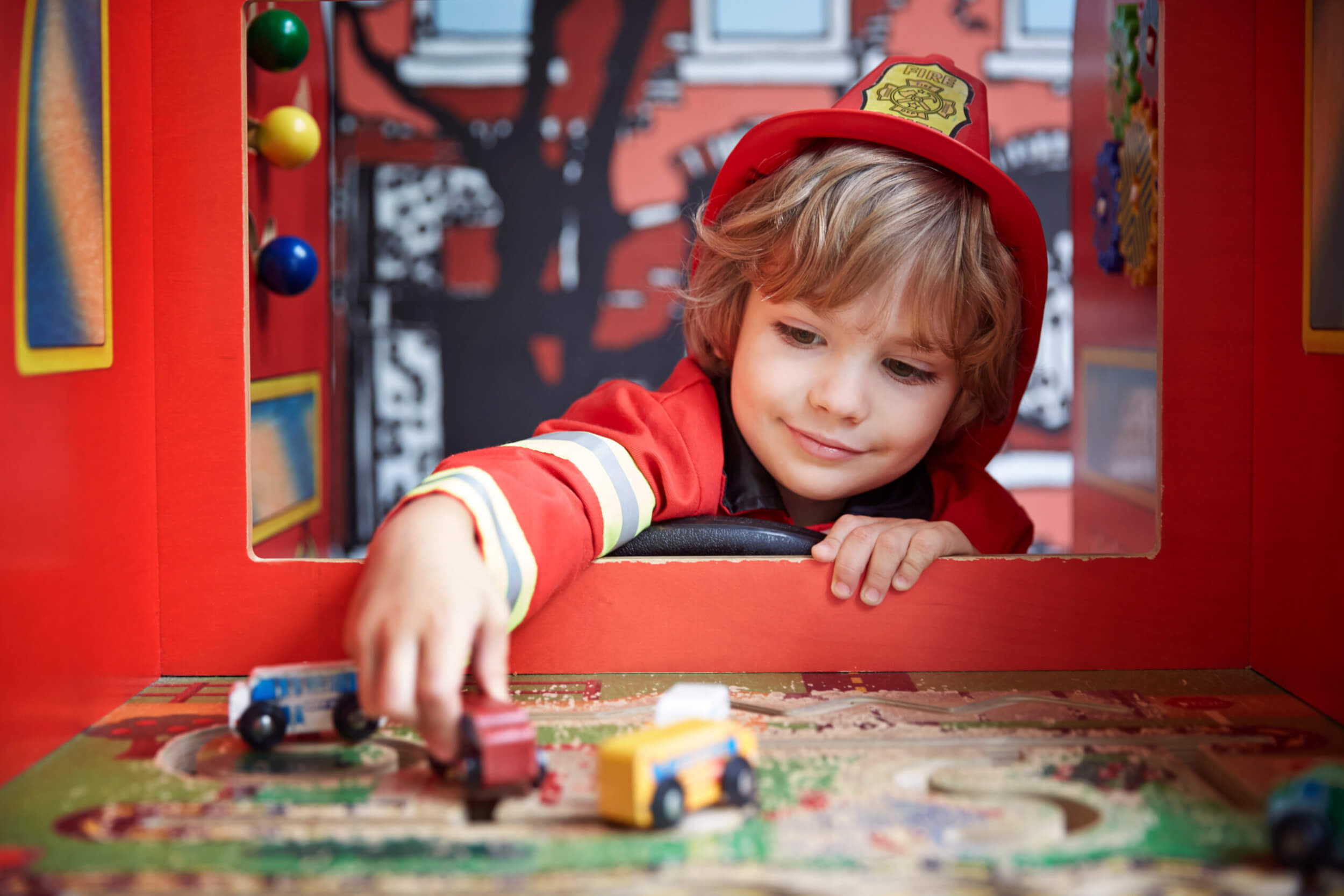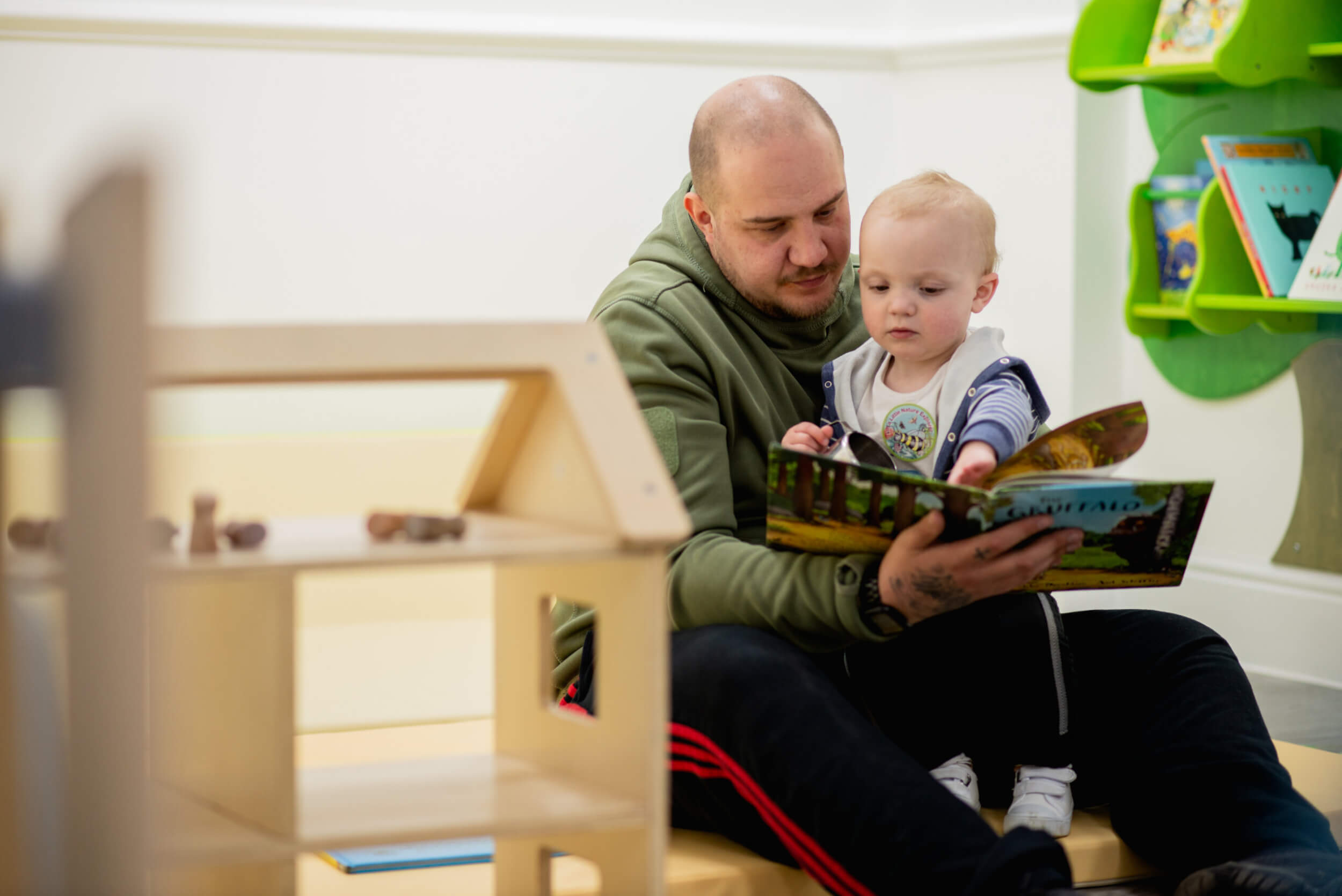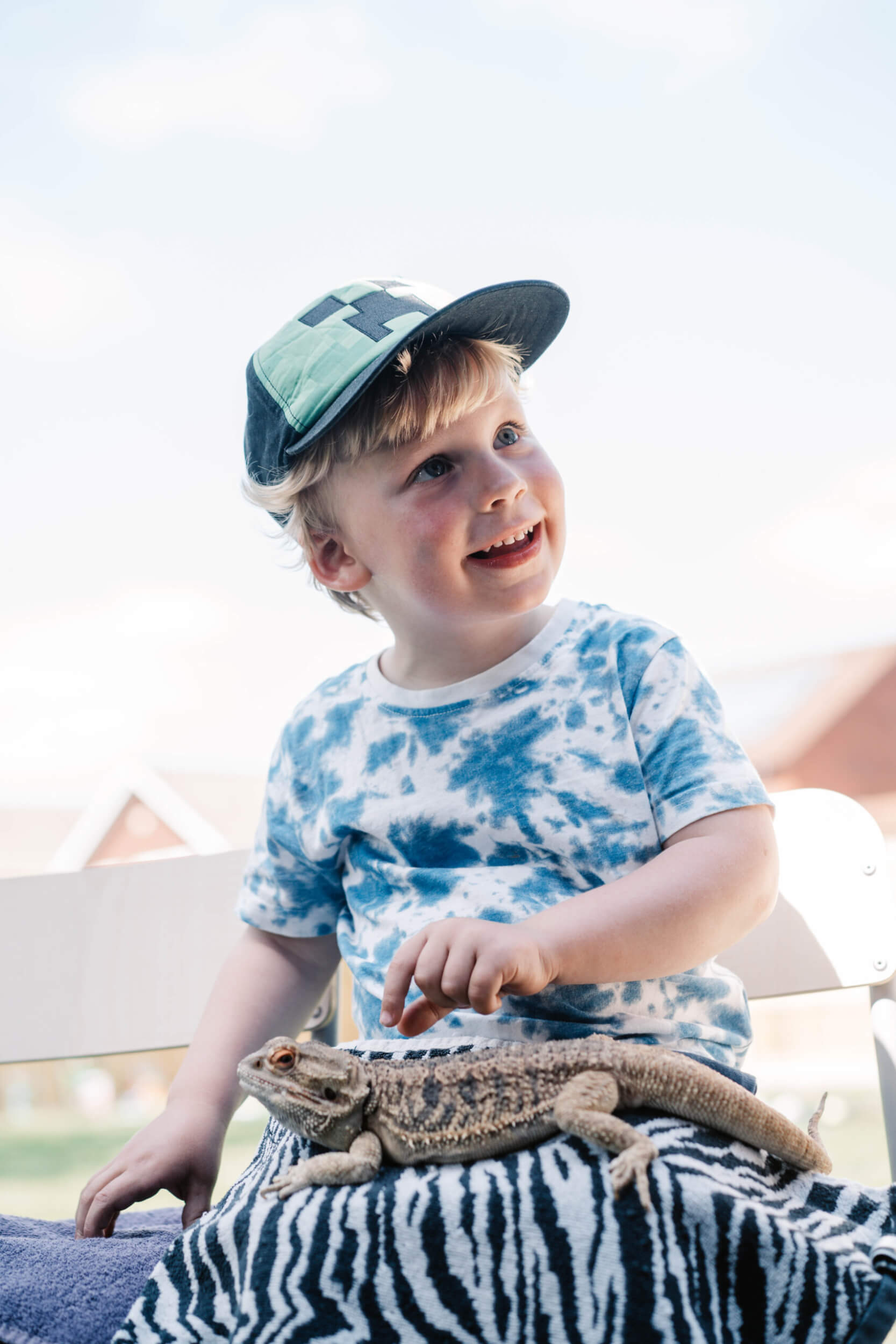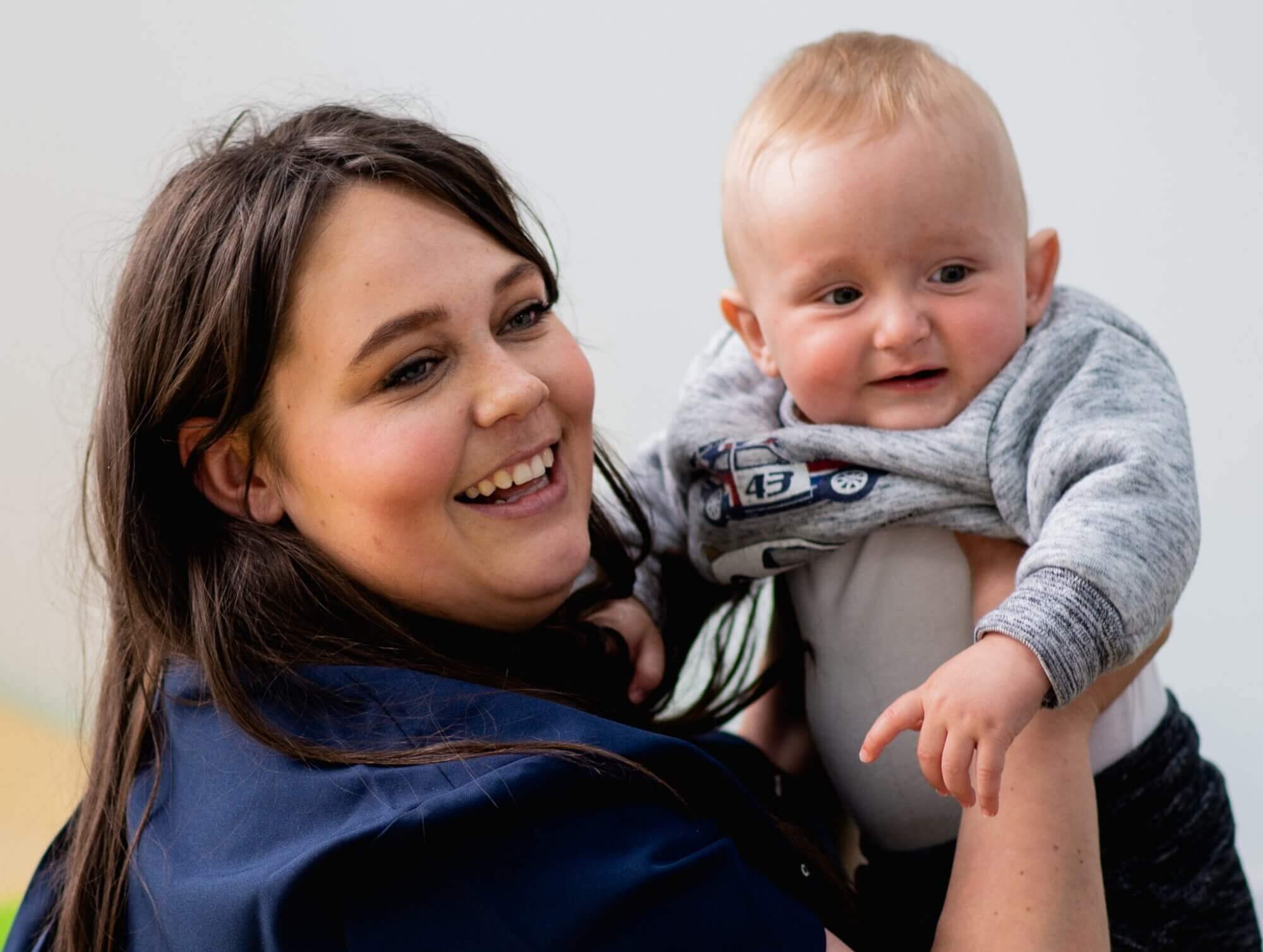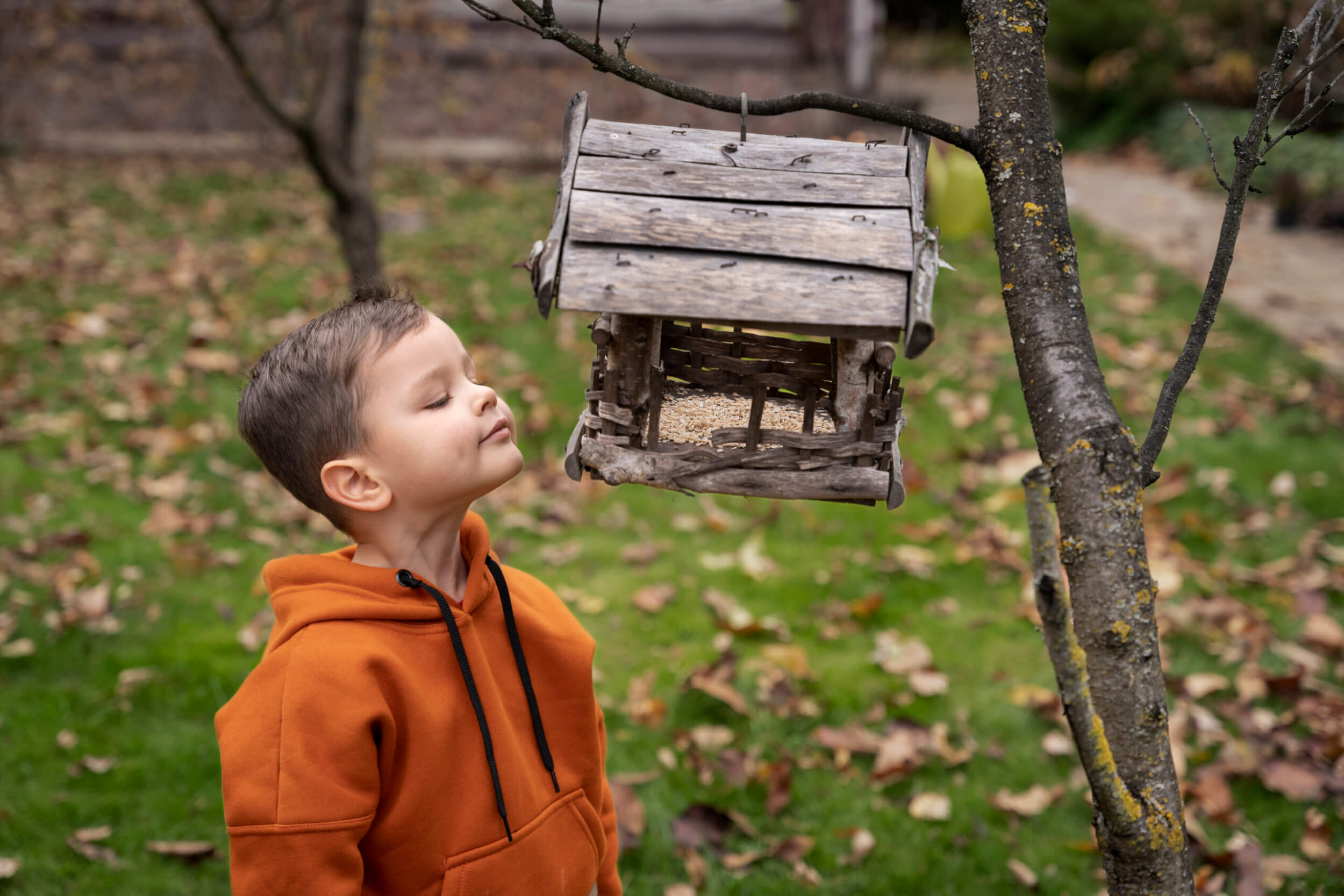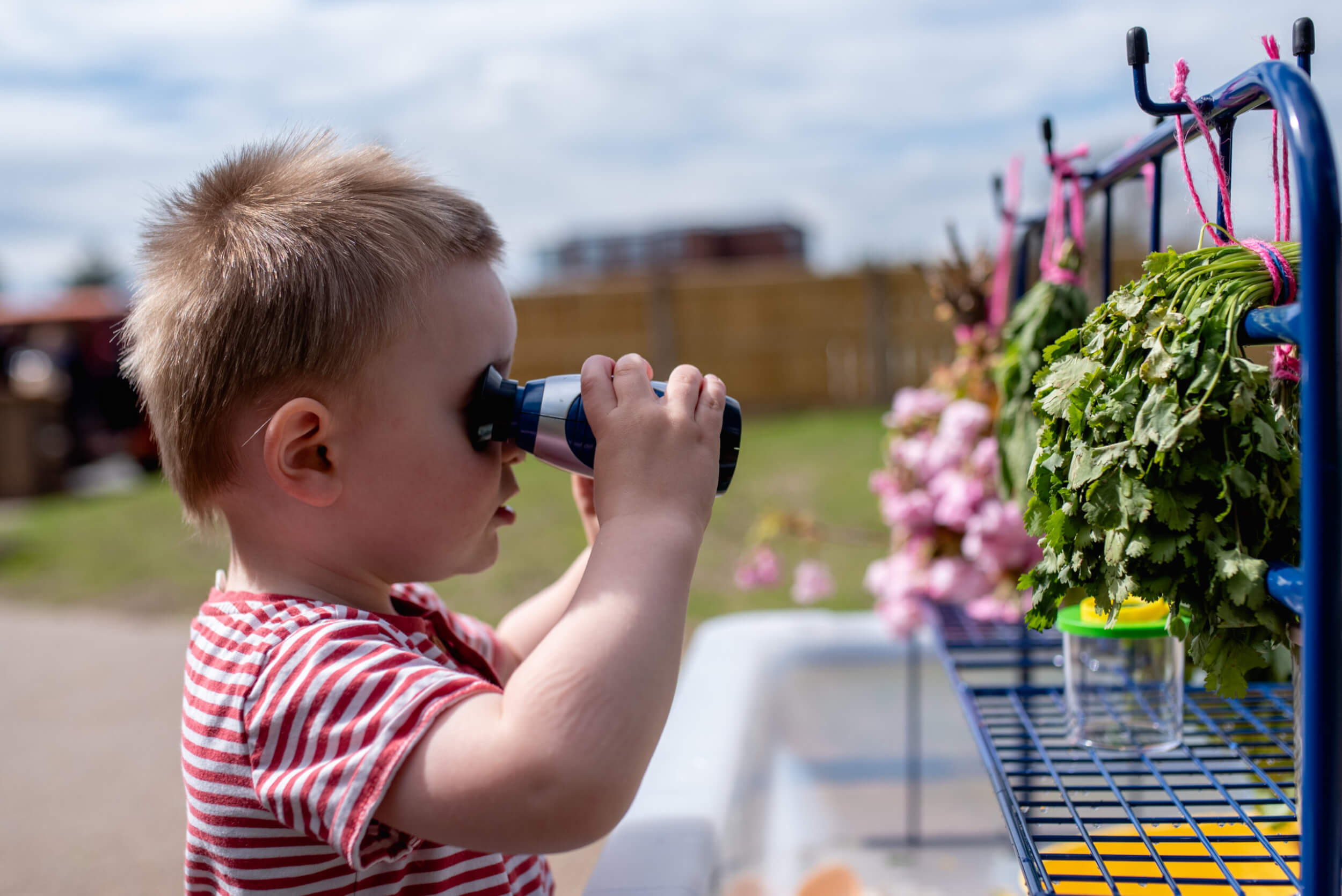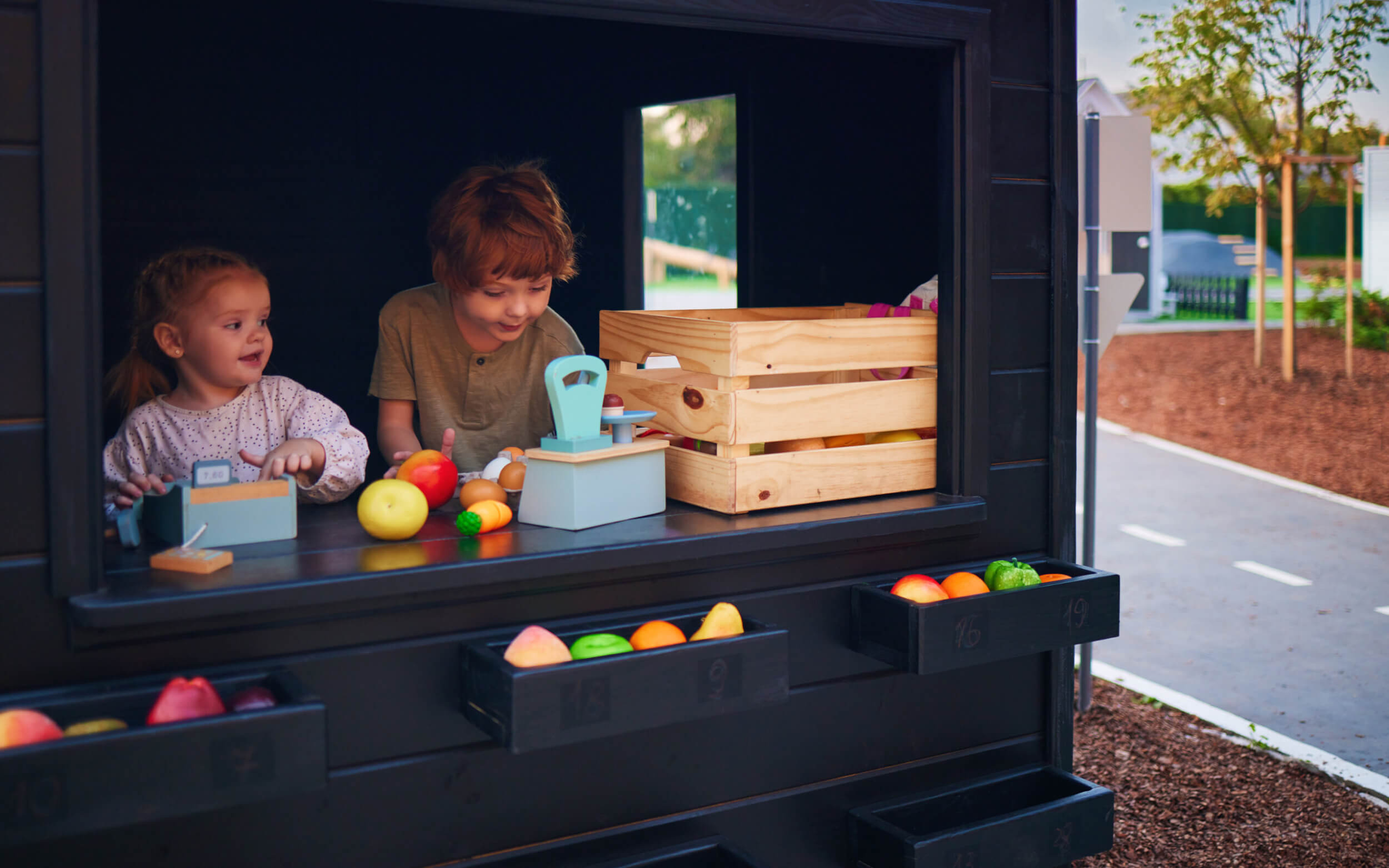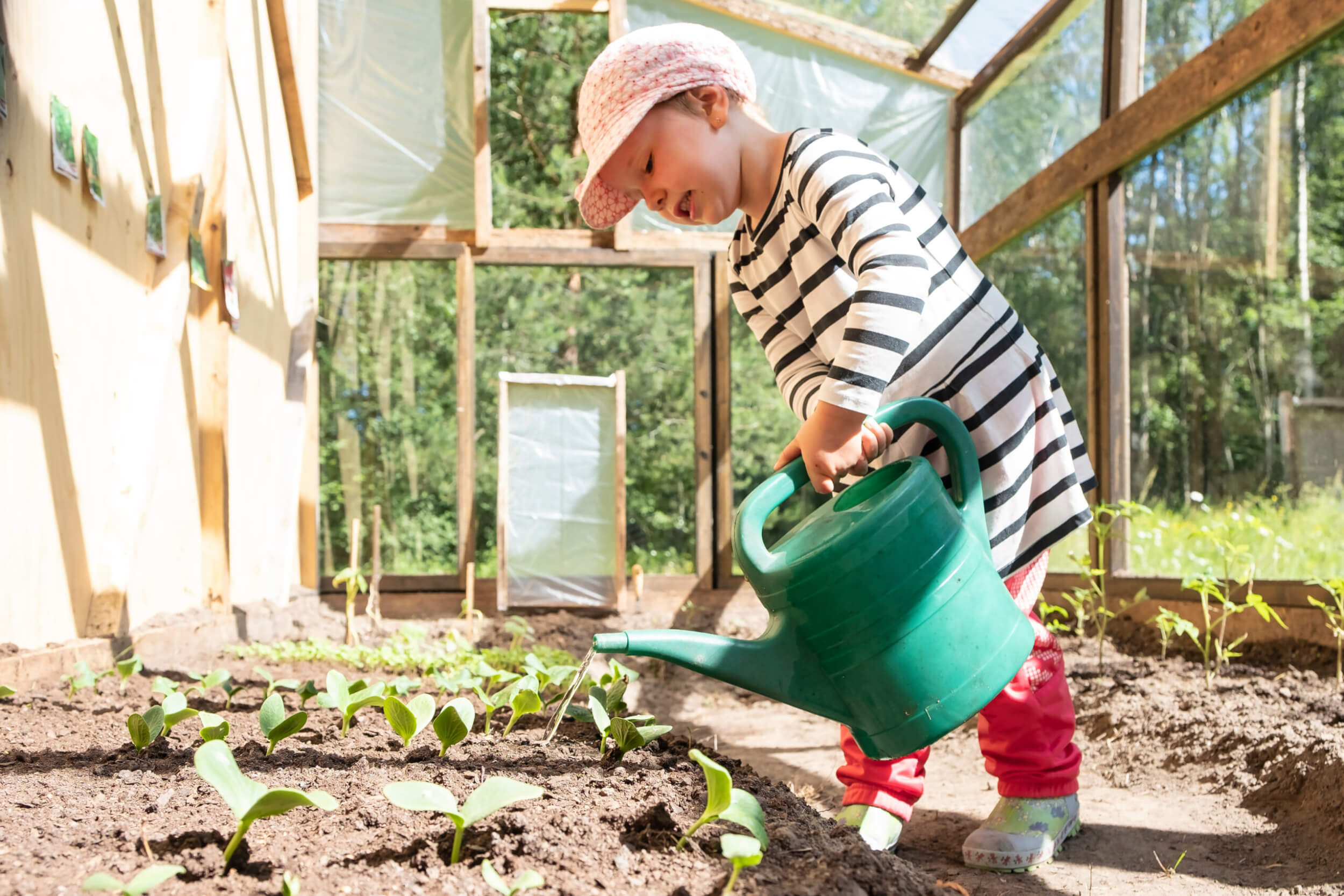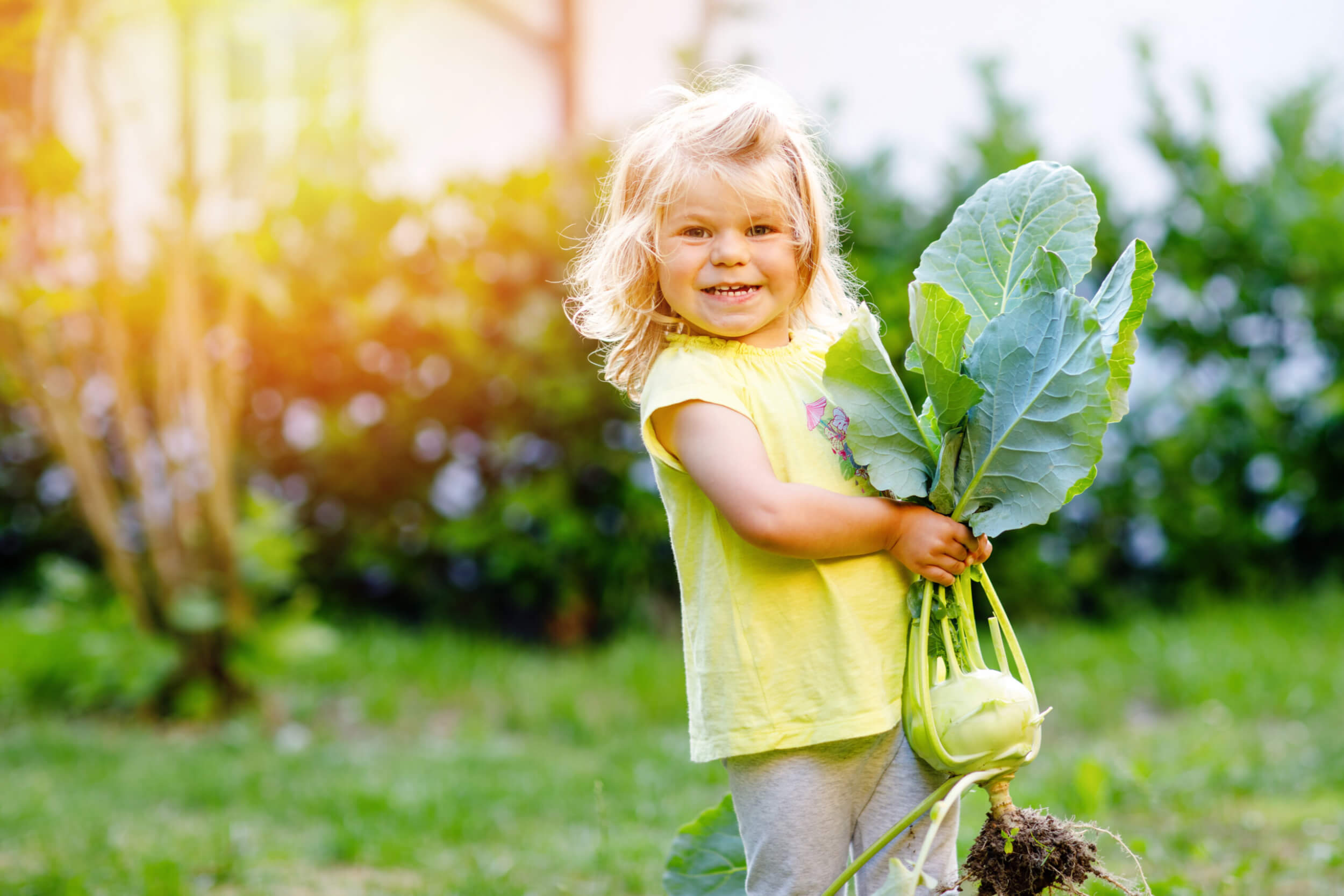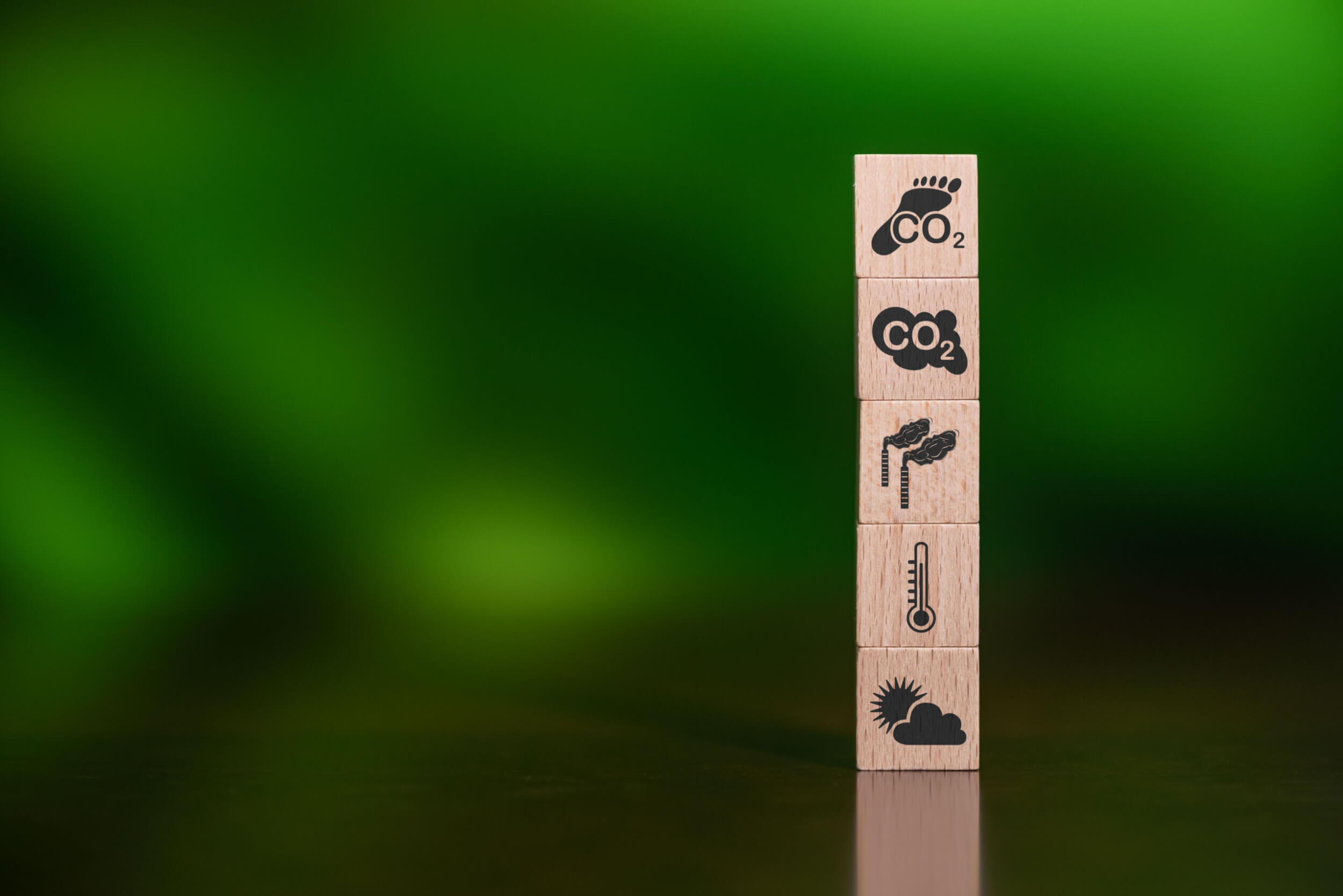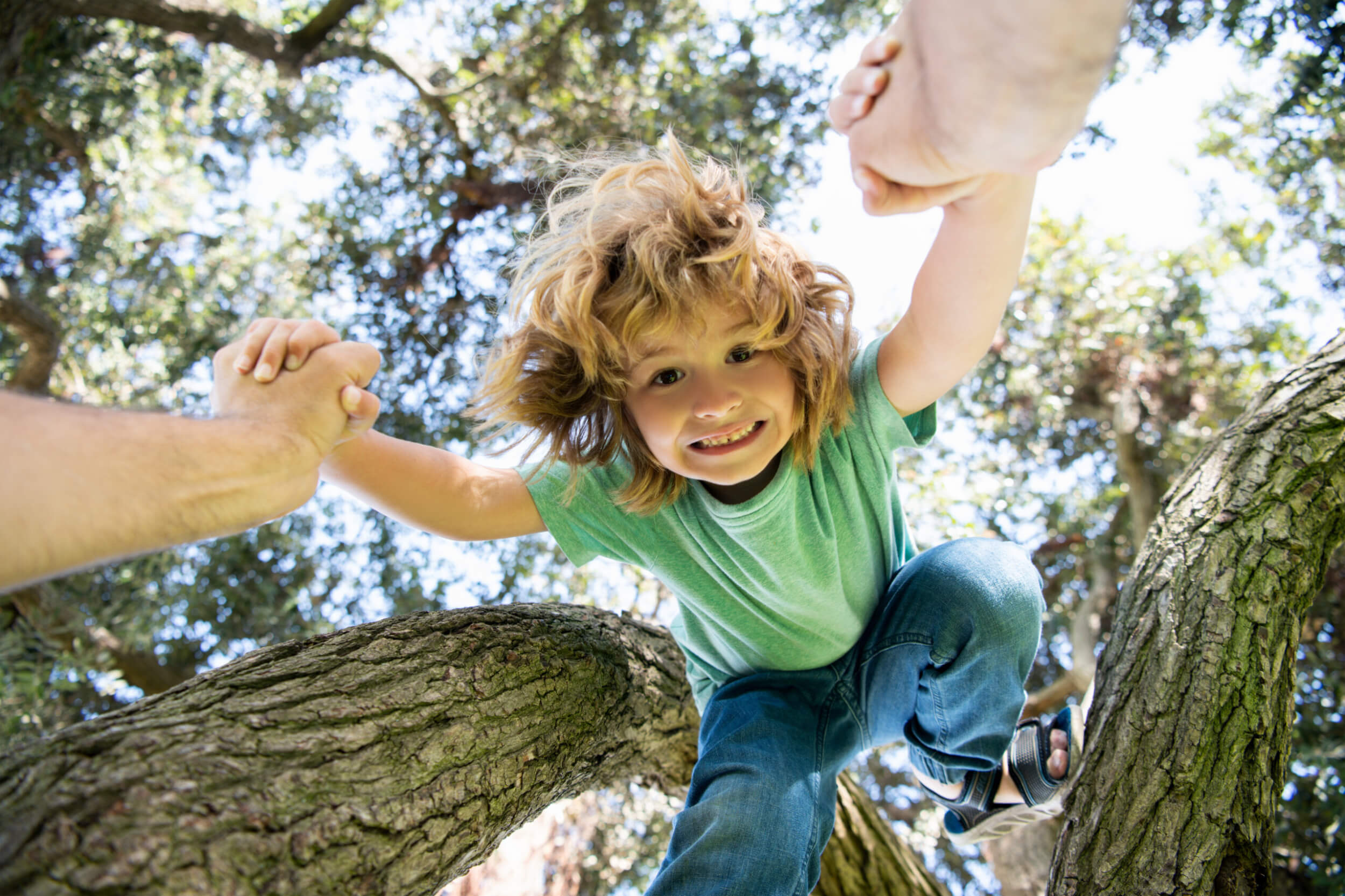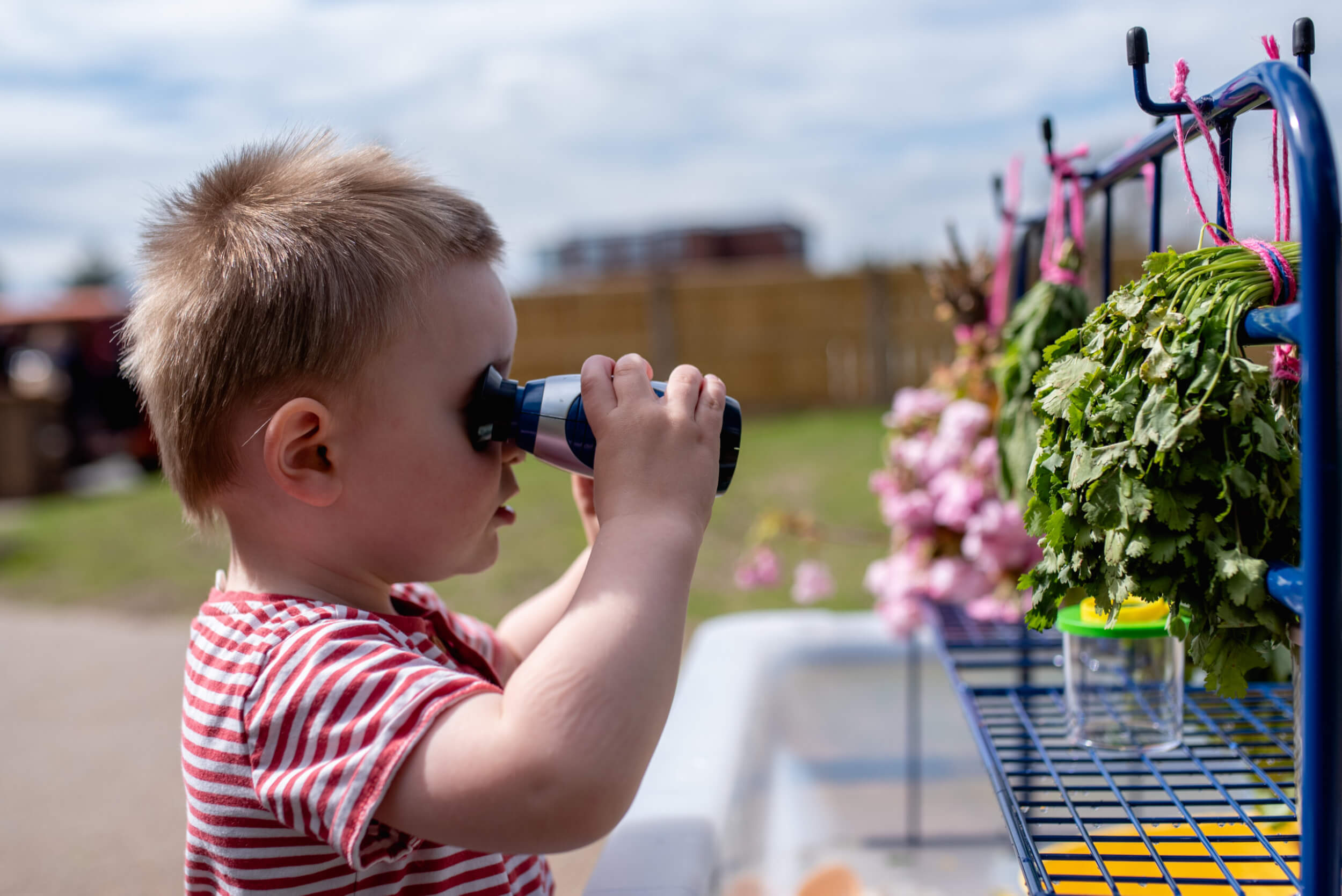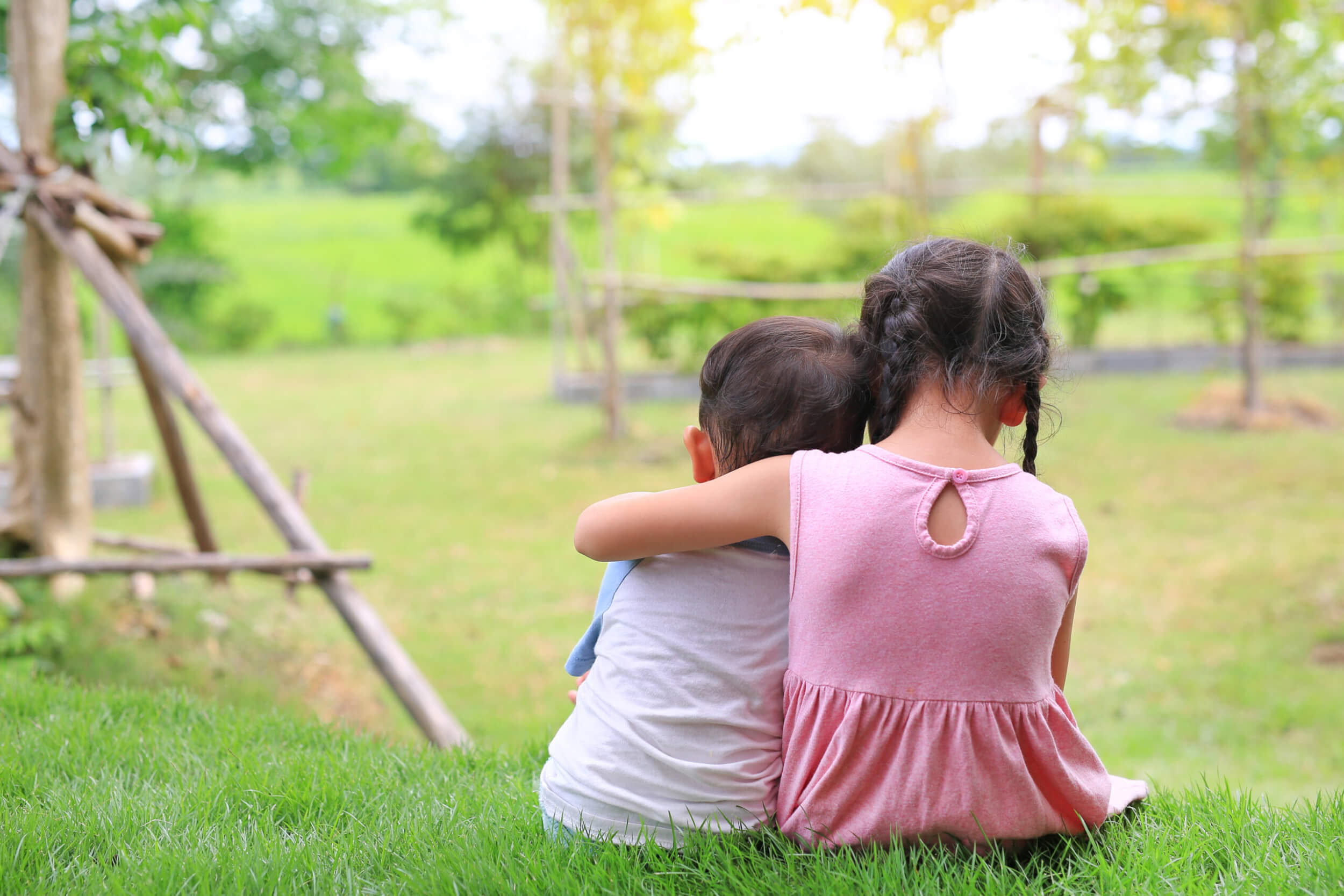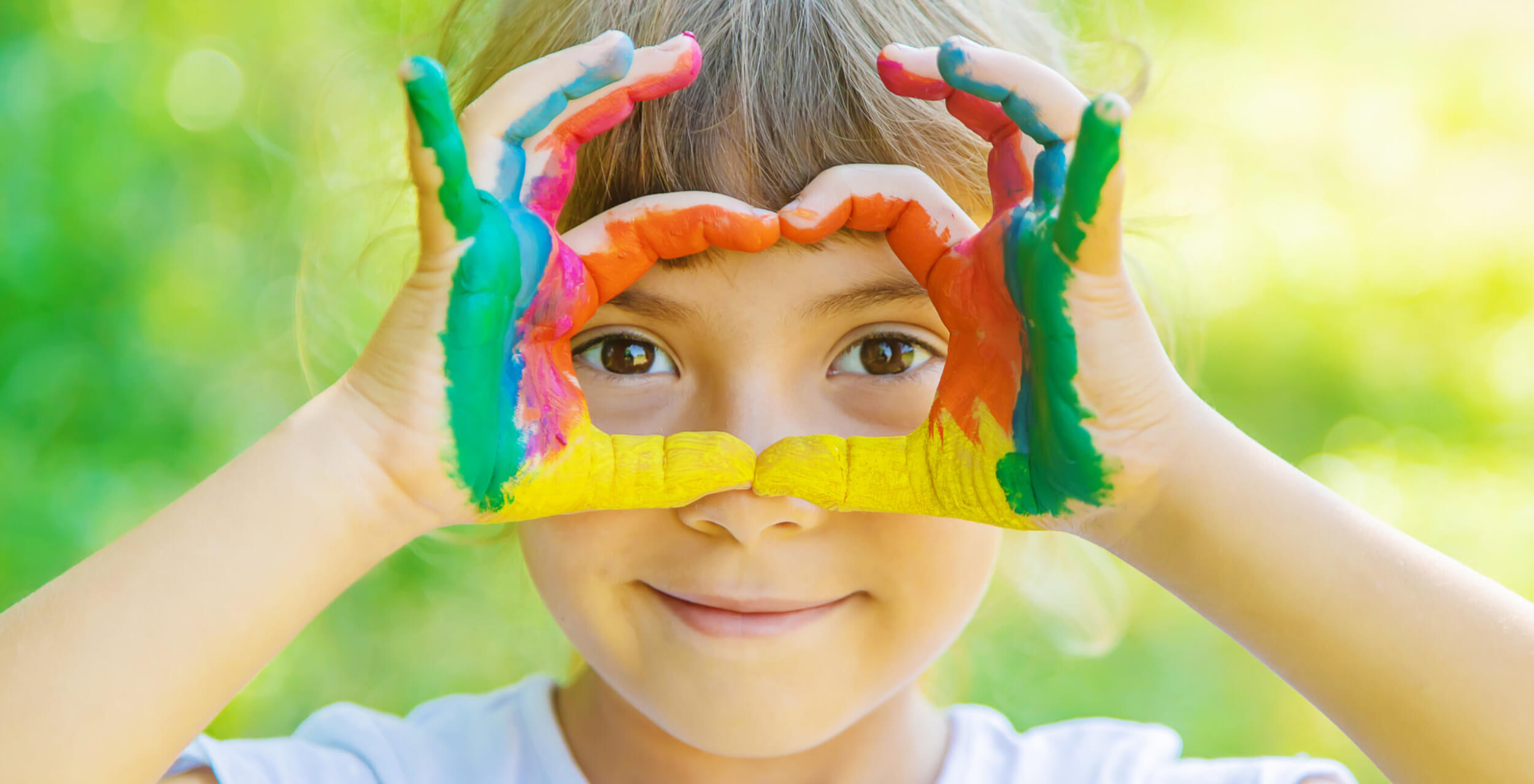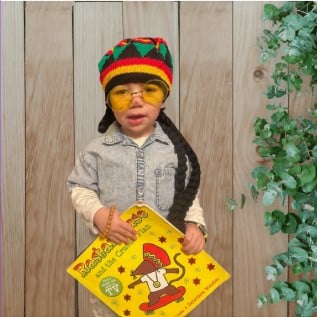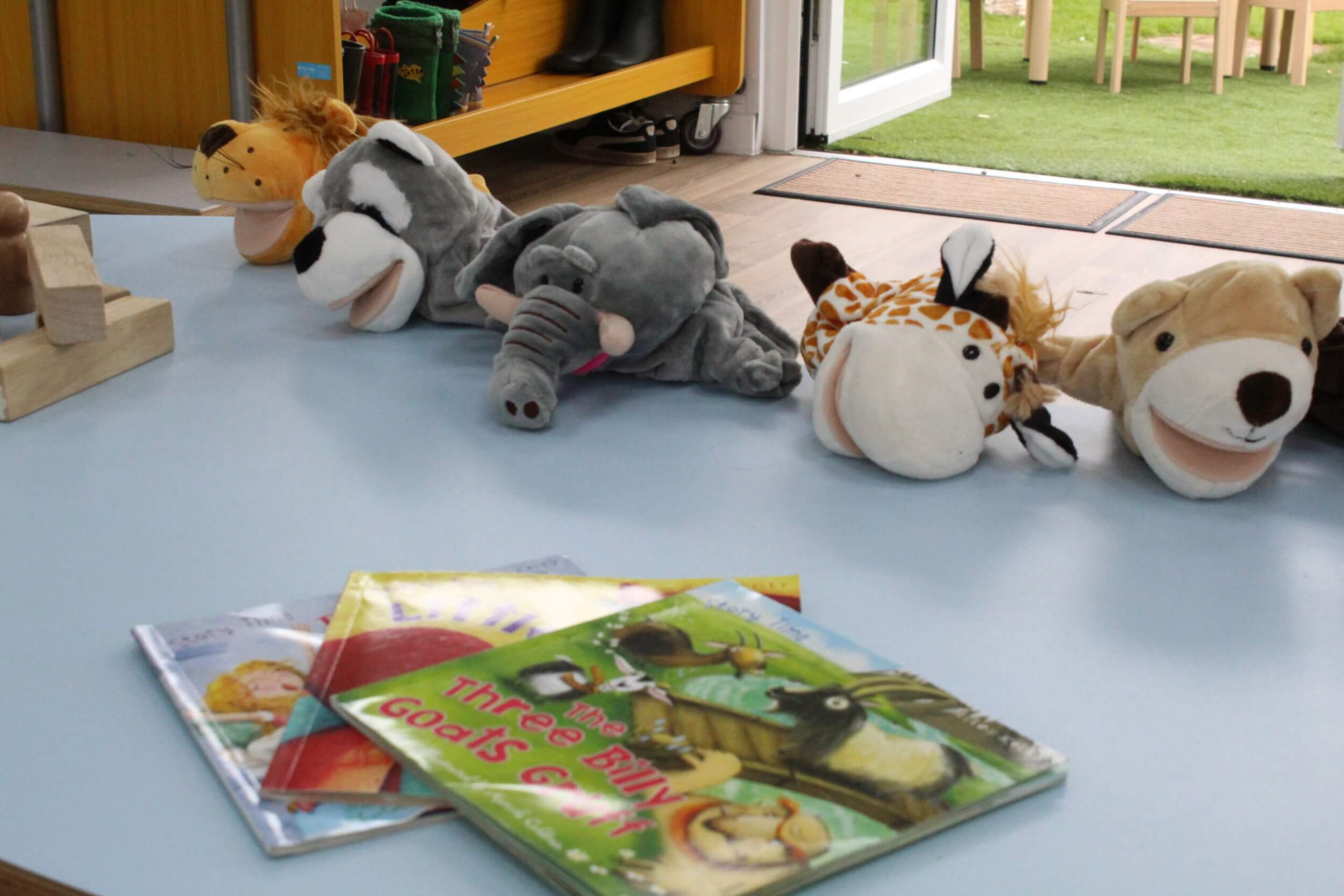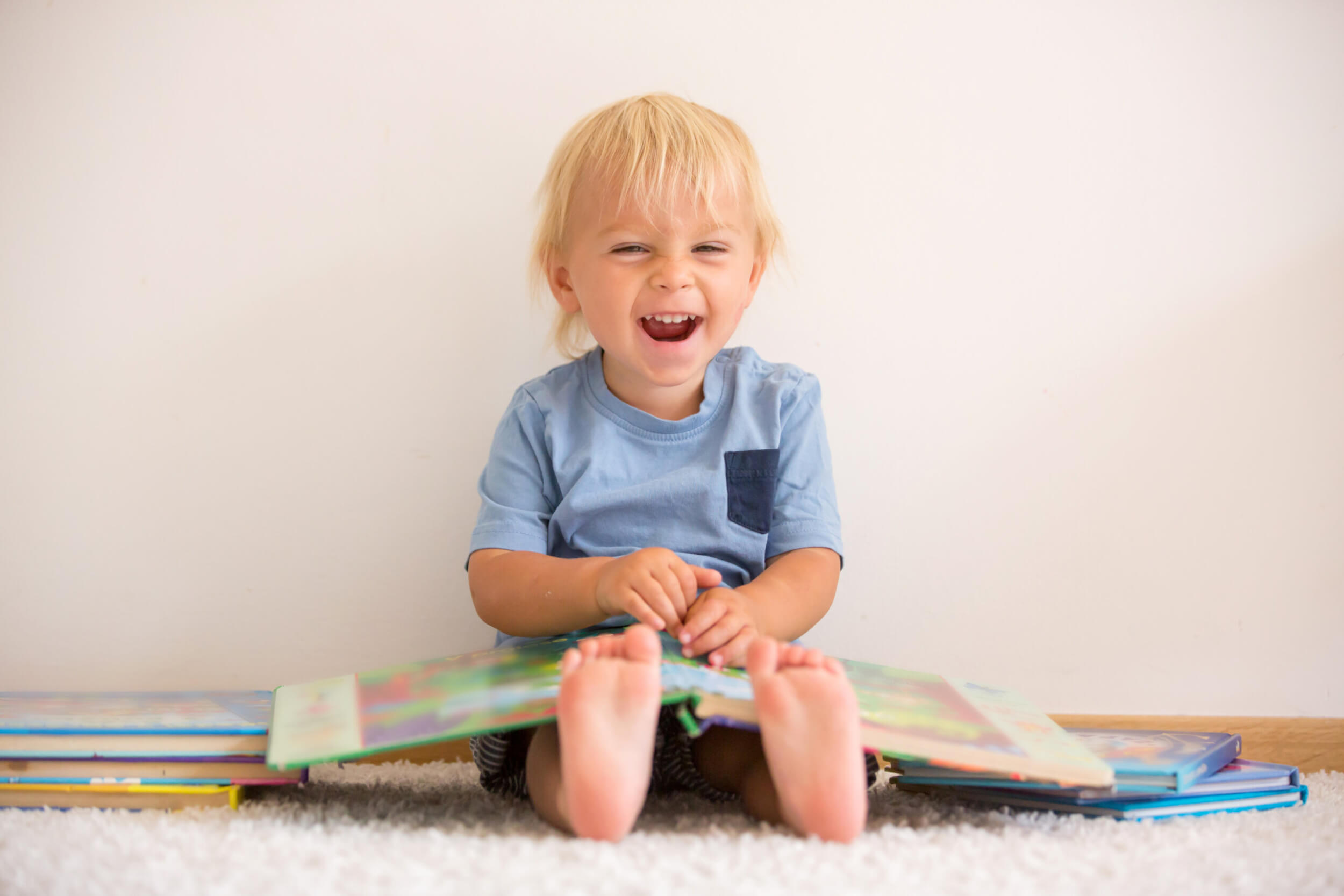Why Historic Spaces Speak to Children
Young children are deeply sensory and instinctive. They notice light, space, sound and feeling in a way that adults often overlook. Many heritage buildings, built with care and proportion, naturally create environments that feel safe, intriguing and beautiful.
The tall ceilings, original features and distinctive spaces become more than just distinctive spaces. They become fuel for imagination. Over time, children begin to understand that these spaces existed long before them. That they are now part of something that has lasted. This gentle exposure to history helps children form early respect for the past, curiosity about culture and a sense of care for the world around them. These moments may be quiet, but they leave a lasting impression.
Some of Our Favourite Stories
In Canopy Potters Bar, our nursery sits inside the Grade II listed Green Man public house. Original fireplaces have become crawl spaces and reading corners, creating cosy, characterful areas that invite play and imagination.
In Wickford, the transformation of St Luke’s Chapel into a nursery is underway. The original lectern remains in place, and the chapel organ will become part of the baby room. This offers a gentle introduction to history and heritage for even our youngest children.
At Frogmore House in Watford, children will soon explore a beautifully restored building filled with original character. Families will step into spaces where natural light, historic features and thoughtful design come together to create something truly special.
The Trade-Off We Choose Again and Again
The truth is that many commercial businesses avoid listed buildings altogether. They are harder to work with. Adapting a historic site means dealing with planning restrictions, higher renovation costs and features that cannot simply be replaced or removed. It impacts the bottom line. And yet, we keep choosing them.
We do not choose heritage buildings because they are easy. We choose them because they offer children something more. A sense of place, story and belonging that lasts.
When Rinu first decided to become a Canopy franchisee to open her own nursery, she was eager but inexperienced. Like many who enter the sector, she faced the challenge of balancing work, study, and the emotional demands of caring for young children. But from day one, Rinu showed resilience, curiosity, and an eagerness to learn.
The EYiTT training program is rigorous — it demands deep knowledge of child development, pedagogy, leadership, and the practical skills needed to support and inspire young minds. Rinu embraced the challenge wholeheartedly. Through classroom learning, reflective practice, and mentorship, she developed her confidence, built her skills, and became a true leader in her setting.
Rinu’s success reminds us that with passion and determination you can rise through the ranks in Early Years education. Her journey shows what’s possible when talent is nurtured and given the opportunity to flourish.
As Rinu prepares to graduate, we couldn’t be prouder. Her future in the nursery sector looks brighter than ever and we can’t wait to see the continued impact she’ll have in the lives of children, families, and fellow educators.
What Parents Can Look For
When visiting a nursery, it can help to ask about the shape of the day. What stays the same? Where is there room for flexibility? How are transitions managed? How are different personalities supported?
The goal is not a rigid schedule. It is a balanced, well-considered flow that gives children both security and space. Confidence grows when children feel emotionally safe and when they feel respected for who they are.
Nursery routines should not be about control. At their best, they are about connection. They allow children to feel part of something steady while still having the freedom to be themselves.
Why are our young people struggling with their mental health?
Our society and culture are changing at an ever-increasing rate, leading to issues affecting today’s children in a way which was not experienced by their parents:
- We are very comfortable: Most of us have control of our immediate environment ensuring that we are rarely hungry, thirsty, cold, hot, in pain or without stimulation. This means that our children are not used to coping with discomfort or boredom, taking it for granted that these basic needs will be anticipated and met and requiring more from life to feel satisfied.
- We live in an uncertain world: At the same time, we feel as if we have less control over the wider world which is filled with uncertainty, misinformation, conflict and escalating problems. These issues anger and worry adults and children are affected by the emotions of the people close to them.
- We prioritise safety and protection: We have become hyper-aware of the possibility of harm and danger all around us and so we monitor and supervise our children’s lives closely to avoid any risks of them being hurt. In order to protect their children from pain, some parents try to take care of every problem their child encounters.
- We have fewer real-life connections: We also tend to live further away from our families and are less connected with our neighbours and communities so children have got used to being in the house and with their parents most of the time, particularly since the pandemic.
We spend more time on screens and social media: If not channelled correctly, technology can have a negative impact on the lives of children in a number of ways;
- from raising unrealistic expectations and isolating them from real life relationships to enabling harassment and connecting them to negative influences.
- We strive to succeed: we expect a lot of ourselves and our children can also feel the pressure to excel academically, socially and at their hobbies which can lead to stress and anxiety.
The effect of these factors is that children’s lives have become increasingly constrained as they are under almost constant surveillance with regular adult intervention and pressure to conform to adult expectations whilst spending less time playing freely outside with their friends.
This drastically reduces our children’s opportunities to build their own resourcefulness and work out how to best get along with others but it is only by doing this that they can build the resilience to cope with life’s challenges.
How can we make a difference?
Childhood experiences set the foundations for our lives so we must remain mindful of the influence that we can have on the mental health of the children in our care.
Bonding with young children so that they feel loved and safe is the cornerstone for all development and learning and from this we can all work to promote mental resilience in children from their earliest years.
It starts with maintaining a daily routine to ensure good self-care which involves:
- Eating a varied and balanced diet
- Getting a good night’s sleep
- Physical exercise and activity
Establishing healthy habits as well as clear boundaries about what is right and wrong, we create a backdrop of structure and consistency which helps children to feel safe and reassured.
Within this we should give children plenty of opportunities to:
- Engage in free, unstructured play: To develop their creativity, imagination and problem-solving skills. The best play often happens after children have complained of being bored and when they accept that adults are not going to provide the entertainment so they take responsibility for amusing themselves.
- Enjoy face-to-face interactions with other children: To enable them to build and navigate different types of relationships with others.
Experience struggle and failure: In this way children realise that making mistakes is normal and they can cope with adversity. By trying different strategies and
- eventually succeeding, they will gain immense satisfaction and confidence in their abilities.
- Get outside: Spending time in the natural world is proven to have a calming effect on us as we benefit from fresh air, natural light and interacting with nature. For children in particular, it promotes physical activity, adventure and freedom from the restraints of being indoors.
- Try something new: This demonstrates that the world is full of exciting possibilities and builds confidence to explore and experiment.
- Listen to stories: Stories can be very meaningful to children as they illustrate how people can suffer but ultimately good triumphs over evil which is reassuring, especially in times of trouble.
We can encourage children to:
- Talk to us: Putting their feelings into words helps children to understand and regulate themselves more effectively. It also helps us to support and encourage them and to celebrate their achievements.
- Be optimistic: By focusing on the positive possibilities and outcomes rather than dwelling on the negative, we can help children to be brave and face challenges.
- Be considerate of others: Prompting children to think about other people’s situations and feelings encourages empathy which leads to a healthy realisation that everyone has a different perspective and the world does not revolve around them. Taking action to help or be kind builds self-esteem and appreciation of gratitude.
- Keep moving forwards: Children look to you for clues on how they should react. If, for example, a child has a minor tumble and you react dramatically then they are far more likely to become inconsolable and take time to recover than if you treat it as a minor inconvenience and expect them to jump up and carry on. This does not mean that you don’t acknowledge or discuss an upset but by setting the expectation that it doesn’t stop you from moving forwards in some way, you can prevent it from becoming more debilitating than it needs to be.
- Approach life with gentle humour: Helping your child to find the humour in a difficult situation can take the sting out of it, enabling them to take it and themselves less seriously.
Our reactions to events affect how children view the world so we can all model resilience by demonstrating that problems are an interesting part of every day life and are there to be solved.
Encouraging children to solve their problems themselves will build their confidence to do so repeatedly until it becomes second nature, building a more resilient young adult.
The Vibrant Market Town
Beyond its historical allure, St Albans is a thriving market town with a lively atmosphere. The St Albans Charter Market, held every Wednesday and Saturday, has been a staple since the 9th century. It’s the perfect place to shop for fresh produce, artisanal goods, and unique treasures.
The city centre is a hub of boutique shops, charming cafes, and diverse eateries. From cozy pubs serving traditional British fare to trendy restaurants offering international cuisines, there’s no shortage of options to satisfy your palate.
Green Spaces Galore
One of St Albans’ greatest charms is its abundance of green spaces. Verulamium Park, adjacent to the Roman ruins, is a picturesque spot for picnics, leisurely strolls, and family outings. The park features a serene lake, a splash park, and plenty of open space for outdoor activities.
For a more tranquil escape, the Watercress Wildlife Association Nature Reserve offers a peaceful haven where visitors can connect with nature and enjoy wildlife spotting.
Cultural Gems and Festivals
St Albans has a thriving cultural scene that includes theatres, art galleries, and live music venues. The Maltings Arts Theatre hosts an array of performances, from drama to comedy, while the St Albans Museum + Gallery provides a blend of contemporary exhibitions and local history.
The city also comes alive during its annual festivals, such as the St Albans Food and Drink Festival, Christmas Market, and Roman Festival, which celebrate its unique heritage and community spirit.
A Gateway to Adventure
St Albans’ location makes it an ideal base for exploring the surrounding countryside. With excellent transport links, you can easily venture into the nearby Chiltern Hills Area of Outstanding Natural Beauty or explore other charming Hertfordshire towns.
Family Friendly St Albans
With its family-friendly atmosphere, excellent schools, and abundant green spaces, it is no surprise that St Albans is a popular choice for families. For parents looking for childcare options, the city offers a wide range of facilities and services designed to cater to children of all ages.
Childcare in St Albans
Here’s a comprehensive guide to the childcare options in St Albans.
- Day Nurseries
Day nurseries are a popular choice for working parents in St Albans. These facilities typically cater to children from six weeks to five years old, offering full- or part-time care.
Daynurseries.co.uk provides families searching for the right nursery for their child with an invaluable resource as it lists the nurseries in the area, together with detailed customer reviews to provide a taste of what to expect. Located in Bricket Wood, Canopy St Albans’ listing can be viewed here: Follow Link:
- Childminders
For families who prefer a smaller, home-like setting, registered childminders in St Albans provide an excellent option. Websites like Childcare.co.uk and Hertfordshire Family Centre Service list local registered childminders.
- Childminders
For families who prefer a smaller, home-like setting, registered childminders in St Albans provide an excellent option. Websites like Childcare.co.uk and Hertfordshire Family Centre Service list local registered childminders.
- Preschools and Playgroups
Preschools and playgroups focus on early learning and socialization for children aged 2–5. These are ideal for parents looking for part-time care that introduces their little ones to structured learning in a nurturing environment. They can often be found in local schools and community centres.
- After-School Clubs and Holiday Camps
For school-aged children, after-school clubs and holiday camps provide a fun and safe environment for continued care.
Fun Fest Holiday Clubs provide Ofsted registered holiday childcare for children from 3 – 12 years which means that all local childcare needs can be met. You can find out more here: Follow Link
- Nannies and Au Pairs
For families seeking a more tailored, in-home childcare solution, hiring a nanny or au pair is an excellent choice. Agencies like Tinies Hertfordshire and online platforms like Care.com help connect families with qualified professionals.
Support for Early Years Funding
Many parents in St Albans qualify for government-funded childcare, which can significantly reduce costs. To find out more about whether you are eligible and how to access this funding, please go to:
By following these simple safety tips, we can ensure children enjoy all the fun of the season while staying safe. Be sure to check out the free safety resources, available on the link below, to share with family and friends!
All of these pointers will help your little one when it comes to early morning waking too.
Make sure:
-
- It’s not too light in their bedroom.
- That they have a good nap routine with the right amount of day time sleep for them.
- They are not going to bed under or over tired – as this will impact what time they wake in the morning.
- Be patient and persistent.
- Be consistent.
